








the magazine of the Memphis Bar Association
Memphis Bar Association Publications Committee
Nicole M. Grida, Chair
Audrey Calkins, Vice Chair
Terre Fratesi
Maureen Holland
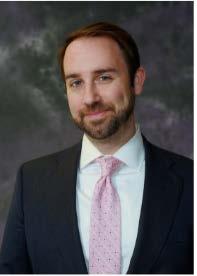
Adam Johnson President Nahon, Saharovich & Trotz
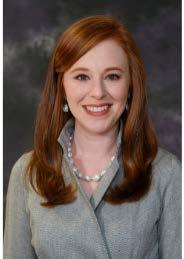
Lauren Stimac Vice President Glassman, Wyatt, Tuttle & Cox
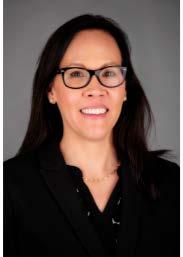

Jennifer Sink Past President MLGW
The Memphis Lawyer is a quarterly publication of the Memphis Bar Association, Inc. with a circulation of 2,000. If you are interested in submitting an article for publication or advertising in an upcoming issue, contact info@memphisbar.org. The MBA reserves the right to reject any advertisement or article submitted for publication.
Marlinee Iverson Secretary/Treasurer Shelby County Attorney's Office
Donald Babineaux
Taurus Bailey
Preston Battle
Audrey Calkins
Amber Floyd
Malcolm Futhey III
Jack Heflin
Justin Joy
Lani Lester
Matt May
Joseph McKinney
Hon. Danielle Mitchell
Ruchee Patel
Will Perry
Abigail Webb Sala Hon. Zayid Saleem
Joseph Smith
Maggie Stringer
Quinton Thompson Councilwoman Janika White
Section Representative
Laurie Christensen
Anne Davis
Thomas Greer
Chasity Grice
Dan Norwood
Toni Parker

Taylor Flake Lawson The Memphis Bar Association 145 Court Ave. Suite 301 Memphis, TN 38103
Phone: (901) 527-3573 www.memphisbar.org
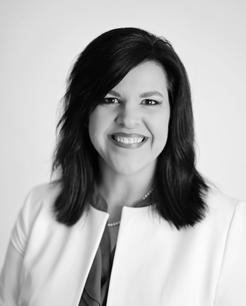


AWA Representative Eliza Jones
Law School Representative Regina Hillman
NBA Representative Carlissa Shaw
YLD President Jeffrey Moore


BY ADAM JOHNSON, MBA 2024 PRESIDENT
Good grief, what a spring and summer for the Memphis legal community. Beginning on September 1, 2024 and despite the best efforts of the MBA, Shelby County lost both one Criminal Court Judge and one Circuit Court judge, as those judgeships moved to other counties. Additionally, Legal Services Corporation informed Memphis Area Legal Services (MALS) that it would not provide any federal funding after June 30, 2024. Memphis as a city is being tested in lots of different ways, and the legal community is no exception. But to paraphrase Spiderman’s Uncle Ben, with great change comes great opportunity. We are a resilient city, and these challenges provide us with a chance to transform into something greater as we work to find solutions. We need to stand together and fight for our community, and you can contribute in a plethora of ways. Consider donating your time, expertise, money, or even serving on a committee. Together, we can meet these challenges and become stronger because of them!
On a brighter note, the MBA continues to work collaboratively with other legal organizations in the city. For example, earlier this year the MBA, the Ben F. Jones Chapter of the National Bar Association, and Just City put on a joint CLE at the Civil Rights Museum that took an in-depth look at the impact of mass incarceration both from a legal and personal perspective. Recently, EEOC General Counsel Karla Gilbride visited Memphis and spoke at the law school as part of a CLE on the 60th anniversary of Title VII of the Civil Rights Act of 1964, another joint effort among the EEOC, the MBA, and the Ben F. Jones Chapter. I encourage you to watch both programs on the On-Demand Library on the MBA website, as they were fantastic. The MBA also worked with Shelby County Commissioner Charlie Caswell, Jr. in early May to provide an expungement clinic for the community. And in September, the MBA’s Access to Justice Committee, the YLD, and MALS partnered
with City Councilwoman Jana Swearengen-Washington and the Circuit Court Clerk’s Office for a Restoration of Rights Clinic in September. More expungement clinics are in the works. Please consider volunteering your time as we can definitely use your help!
After Judge Rhynette Hurd, Mayor A.C. Wharton, Walter Bailey, and Charlie Newman spoke at a dynamic CLE discussing several landmark cases in Memphis, we recently had the pleasure of revealing the Memphis Bar Association’s exhibit in honor of our 150th anniversary at the Museum of Science and History (formerly known as the Pink Palace). MoSH has been working alongside many of our leaders, stakeholders, and staff for the past seven months to create the “All Rise, The MBA @ 150” exhibit, which exhibit highlights the Bar’s mark on Memphis history and our legal community. Entities and practitioners across our city provided artifacts for the exhibit, such as the original spittoon from the courthouse in 1909 and Judge Bernice Bouie Donald’s gavel presented at her swearing-in ceremony in 1996. The exhibit highlights seventeen landmark cases that include everything from advocating for civil rights to protecting the environment and also educates the community about their rights and the court system. Added entertainment includes a focus on weird laws in Tennessee. Finally, the exhibit shares the history of the Memphis Bar Association and emphasizes its progression and impact on our justice system. This exhibit will be on display through February 2025, so don’t miss out!

BY U.S. MAGISTRATE JUDGE ANNIE CHRISTOFF
Aseveryone is now aware, the Memphis Bar Association celebrates its 150th anniversary this year. To mark the occasion, we have planned a once-in-a-lifetime event. On Saturday, October 19, 2024, please join us for the MBA’s 150th Anniversary Celebration at the Memphis Museum of Science & History (formerly the Pink Palace Museum) for an epic night of fun in celebration of 150 years of the MBA.
Why a gala event? Well, the MBA 150 committee has been hard at work developing a year’s worth of educational programming as we look back over the past century and a half and look forward to what likes ahead. I hope that everyone in our legal community takes advantage of those opportunities for reflection, planning, and dreaming. We have accomplished so much, and we still have so far to go, and the substantive programming throughout the year will highlight that and more. But the Anniversary Celebration is just that—a celebration. A time for us to get together, appreciate our community, and have fun. No speakers, no agenda, no awards. Just a good time.
Picture the Museum decked out in blue. Valet parking and a welcome cocktail to greet you. Delicious food by Paradox Catering, and three bars with full service plus specialty cocktails. Incredible music by the Soul Shockers. A selfie station and a 360-degree photo booth. Commemorative artwork by local artist Kong Wee Pang. Goodies and swag galore. Plus a lot of fun surprises that I won’t spoil for you—you’ll just have to show up to find out.
All this for $150 a ticket. If you’re able, we’re also offering a special Legacy Benefactor tier for $500, which includes two tickets, a donation to the Memphis









Bar Foundation, and a few perks. The dress is black tie optional—if you want to pull out your tux, go for it (I’m sure Mike Christoff will). Long dress or short? Either sounds great. Just be sure to wear shoes you can dance in.
We all know how special it is to practice law in our beloved city. You work together well, you treat each other well, and you represent your clients well. That kind of collegiality does not happen by accident; it is the product of relationship building and mutual trust and respect. The Memphis Bar Association has played a large role in creating the kind of atmosphere where lawyers can work, live, and thrive, and with everyone’s support, it will continue to do so for another 150 years. So let’s get together to celebrate our legal community and the role the MBA has played in its development.
Mark your calendars and buy your tickets by the deadline of October 4th. This event is can’t-miss and sure to sell out. I can’t wait to see all of you there!
After she graduated from law school, Judge Christoff clerked for U.S. District Judge Jon Phipps McCalla. She then practiced at Bass Berry & Sims, where she worked as a litigation associate and then partner, until she left private practice to work as an Assistant U.S. Attorney in the U.S. Attorney’s Office for the Western District of Tennessee. Judge Christoff was appointed to the bench in May 2020.


BY JIM STRICKLAND DEAN & PROFESSOR OF PRACTICE • CECIL C. HUMPHREYS SCHOOL OF LAW
On June 1, 2024, I became Dean of the University of Memphis Cecil C. Humphreys School of Law, just over thirty-five years after I graduated from the same institution. Thirty-five years. I cannot believe that it has been that long. Time has flown by.
In those thirty-five years, my love of the law and appreciation of lawyers have grown. I know that lawyer jokes abound, and some of them are very funny, but I admire good lawyers, and our city and state have a lot of good lawyers. As you will see below, I watch and study people, learn from almost everyone with whom I work, and try to emulate their successful traits. Lawyers in particular have had a tremendous impact on my growth as a person and professional.
My first extensive interaction with lawyers was as a law school student. Our professors were outstanding. They challenged us early and often, and I remember my first year as very hard. I read more than I ever had in my life...so much so that my eyesight worsened, and I had to get a new prescription for my glasses near the end of the first semester. I also got my first migraine, and those first exams were very stressful. Despite these difficulties, I enjoyed my first year. I learned a lot and made friendships that still exist today.
H.D. Fones for one year. Judge Fones was a great judge and mentor and an even better person. I value my time working for him and learned a great deal from him.
I then worked for Glankler Brown Gilliland Chase Robinson & Raines (now Glankler Brown) and was fortunate to work for some talented and successful lawyers. Working with those lawyers and others throughout our region, I learned the importance of preparation, diligence, judgment, attention to detail, the use and importance of discovery, better communication and trial skills, creativity, and problem solving. I probably worked with and learned from about forty lawyers at this firm, but for the sake of space, I will only mention the three with whom I worked the most: Jim Raines, John Houseal, and Dottie Pounders, truly great lawyers.

After several years, I became partners with David Kustoff, and we shared an office with David’s father, Bernie Kustoff. David and I have been friends since college, and he introduced me to my wife of twenty-eight years, Melyne. David and Bernie were strong advocates for their clients, very responsive to client needs, and extraordinarily diligent.
Each semester of my second and third years of law school got progressively easier. I do not think the classes were less demanding; I believe that I became better prepared to handle them. In addition, I enjoyed participating in moot court and mock trial. In fact, I was part of our National Mock Trial team, coached by Professor Bob Banks. I still use lessons I learned from Professor Banks.
After law school, I got the incredible opportunity to clerk for Tennessee Supreme Court Justice William

From 2016 through 2023, I was honored to be Mayor of Memphis. I was fortunate to work with three exceptional City Attorneys: Bruce McMullen, Jennifer Sink, and Mike Fletcher. It was the first time that I was the client and received legal advice and counseling. Each one of these lawyers was a valuable part of our Senior Leadership Team and contributed so much to all matters, including those beyond the legal field. Dozens of other lawyers within the City Attorney’s Office and in private practice advised me, and I was impressed by their expert guidance. I also want to note that Allan Wade skillfully helped counsel me when I was on the City Council and as Mayor.

In addition, two lawyer friends of mine, Alan Crone and Mike Keeney, advised, educated, and challenged me throughout my tenure as Mayor. Their skills as lawyers helped them quickly gather facts, communicate with others, and learn issues so they could offer significant insights. Alan actually worked at city hall in my first term and led on many issues, including government relations.
In addition, there have been countless examples of positive societal changes made by Memphis lawyers through their representation of individual clients during my lifetime. But one that occurred before I was born has inspired me.
In 1961, in Memphis city court, several young lawyers represented college students who were charged for staging sit-ins at city libraries in an attempt to desegregate the city facilities. Ernest Withers photographed the lawyers standing at the judge’s bench, and what captured my attention was that many of those young lawyers were judges I admired when I started practicing.
Standing are Benjamin Hooks, S.A. Wilbon, Russell Sugarmon, Odell Horton, H.T. Lockard, Evander Ford, and Rufus Sanders. My wife and I bought this photograph from Mr. Withers, and he signed it. It has been in my office for over 20 years and serves as inspiration to me that lawyers can effect positive change for our city and nation. When the City renovated the Cossitt Library several years ago, we included an artist’s rendering of this picture, several other of Withers’ protest photographs, and a list of the names of each known protester as a tribute to the lawyers and students who changed Memphis through our judicial system.
are perfect team members; we are educated and trained for the work and compete to seek the best results.
As Dean, I will try to implement the lessons I learned (and continue to learn) from lawyers in our city and state to fulfill the School’s mission of providing “an affordable, intellectually rigorous, and practice-oriented legal education.” Student success is the number one
Dean Jim Strickland became a professor of practice at the Cecil C. Humphreys School of Law at the University of Memphis on April 8, 2024. He became Dean of the law school on June 1, 2024. Dean Strickland previously served on City Council and as the Mayor of Memphis.


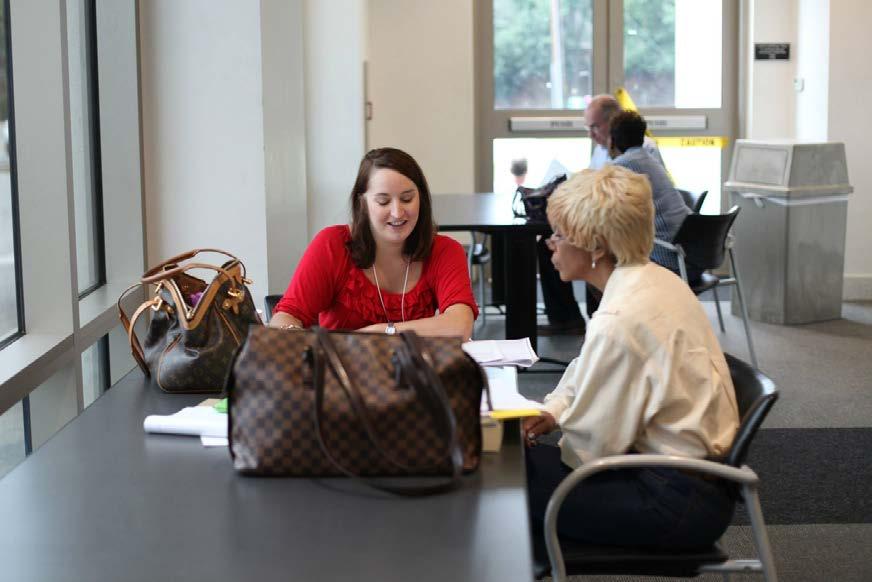
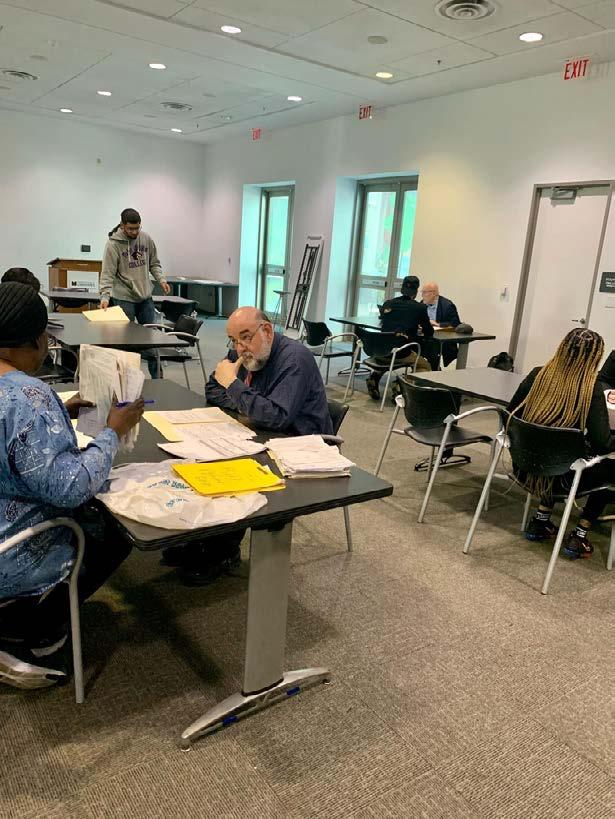

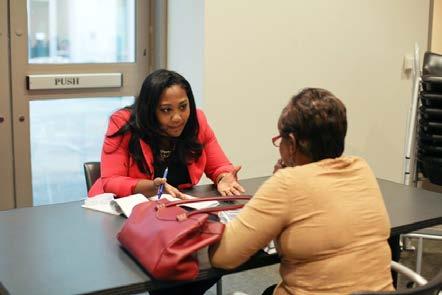

MBA 150th CLE Series: MBA Pro Bono Legacy CLE & Access to Justice Awards
After thirty-five years, I have learned that all successes in life come from team efforts and that you must surround yourself with great people to get great results. And lawyers




“Choose 901” became one of Memphis’ unofficial slogans, the founders of choose901.com probably did not know that their tagline applied to U.S. District Judge Sheryl H. Lipman. During an interview with MBA Publications Committee chair Nicole Grida, Judge Lipman discussed her youth in Memphis, her education and early career away from home, and her return to Memphis.
Judge Lipman was involved in the community by the time she was a teenager. She had a Saturday morning radio show at WEVL, and she played comedy albums by artists like Bob Newhart and Beyond the Fringe. She also read books containing old laws that were still valid, like when it is legal to walk an alligator on a leash and if you ride your horse down Main Street, you have to carry your hat in your hand.
Although she grew up in Germantown, Judge Lipman abandoned her WEVL radio show and left Memphis for college at the University of Michigan in Ann Arbor—and planned not to return to Memphis when she was done with school. Being a Wolverine was enticing for several reasons: Judge Lipman’s brother was in graduate school there at the time, and Michigan also had a public interest internship program that would allow participants to work in Washington, D.C. for the summer. But Michigan also felt like it would be worlds away from Memphis and the issues it experienced in the 1970s.
Despite her optimistic view of life outside the South, Michigan, while an academic and athletic prowess, still proved not to be the societal utopia Judge Lipman had hoped for. Even so, Judge Lipman participated with a group protesting the federal government’s proposed education funding cuts. They wrote “stop the cuts in education” on bandaids and mailed the bandaids to Washington, D.C. Throughout her time at Michigan, Judge Lipman remained public-interest oriented and

interned at the ACLU’s legislative office in Washington D.C. through Michigan’s public interest internship program.
One of the law students who interned at the ACLU with her talked up NYU’s public-interest focus and its clinical programs (which were rare at the time). Her coworker’s advocacy for NYU put it on her radar, and Judge Lipman ended up at NYU for law school. She leaned into the experiential learning opportunities that NYU provided in its legal clinics. Judge Lipman found her clinical work valuable because it allowed her to “jump in” and practice law. She argued a motion in front of Judge Weinstein in the Eastern District of New York, and she worked on a reply brief that was filed in the U.S. Supreme Court—and won! After graduation in 1987, she accepted a clerkship with Judge Julia Gibbons (who was on the district court bench at the time) and an associate position at Pierson, Ball & Dowd in Washington, D.C. that was set to begin after her clerkship.
But once Judge Lipman moved back to Memphis for her clerkship, she knew that her path would have her walking in Memphis for much longer than her one-year clerkship.
During her clerkship for Judge Gibbons in 19871988, Judge Lipman experienced a Memphis that was far different from her childhood in Germantown. She lived in Midtown, got to know the city as an adult, and found it “a very cool place to be,” with a “certain beat to it that you don’t find other places.” To her, Memphis was somewhere where “if you want to do something, you just
raise your hand, and you can figure out how to do it. And it’s not that way in other places.”
Judge Lipman’s twelve-month clerkship solidified her intent to return home, but she wasn’t quite ready to make the move. She had committed to work at Reed Smith (which had acquired Pierson) after her clerkship, so she returned to Washington, D.C. and worked there for three years before finally coming home in 1991.
Once Judge Lipman moved back to Memphis, she worked at Wyatt, Tarrant & Combs and Burch, Porter & Johnson before she joined the General Counsel’s Office at the University of Memphis. Throughout her legal career before she took the bench in 2014, she got involved in the community. And she was busy: she started Hands on Memphis and got people involved with it. She also served on the inaugural board of Tennessee Shakespeare Company.
But her involvement did not stop there. For example, she served on the board of the Memphis Bar Association,
the ACLU of Tennessee, Memphis Planned Parenthood, the Memphis Jewish Community Center, Facing History and Ourselves, and Memphis Child Advocacy Center (among others). Judge Lipman prioritized saying yes when asked to serve or be involved because she wanted to live in a community that had the necessary resources available. She saw what Memphis could be, and she wanted to contribute to it as best she could. And her employers supported her ability to contribute: both the firms and the University of Memphis understood the different things she wanted to do, which allowed her to juggle both her legal work and her community involvement.
She thinks it is important to keep celebrating all of the good things about Memphis, like its theater scene, its sport teams and sporting events, and its restaurants. She encourages us to take the opportunity to find a way to celebrate Memphis and figure out where our passions lie so that we can all support Memphis as it grows and changes.


MBAPresident Adam Johnson recently had a chance to sit down with Justice Mary L. Wagner, who was officially confirmed by the General Assembly as the newest justice on the Tennessee Supreme Court on March 11, 2024. Justice Wagner was appointed by Governor Bill Lee on February 1, 2024. She took the bench September 1, 2024 following the retirement of Justice Roger A. Page.
AJ: How old were you when you decided you wanted to be a judge?
MW: Oh goodness. I don't know the age. I'd have to go do the math. I was in law school. I don't know that I decided I wanted to be a judge because it seemed like a very lofty goal, but I was really intrigued with the work and the role that Judges play. That came from clerking for Judge Robert “Butch” Childers and then Judge J. Steve Stafford and seeing that side of the bench.
AJ: How old were you when you decided you wanted to be a lawyer?
MW: Probably pretty young. Elementary school, middle school. I saw what it was like to practice law and enjoyed that. I saw the impact the law and the legal system have on our community and how my parents and grandfather used it to help people. Clients would have problems and they used the law to help those people, which was intriguing to me.
AJ: Speaking of them, what was it like growing up with both your parents and grandparent being lawyers?
MW: Dinner conversations were a lot of fun. <laugh> I mean, I knew how to issue subpoenas in the fifth grade.
AJ: Someone told me you were filing documents at the age of nine. Is that true?
MW: Yes. I think it was the fourth grade, maybe the fifth grade, I aged out of daycare and I was the oldest child. So my parents were trying to figure out, okay, what do we do during breaks and summers? Because they're working; so I went to work with them. Once I got comfortable enough, they'd give me the new lawsuit and the summons, or whatever needed filing.

I'd run down the two blocks on Second Street and file whatever it is that needed to be filed. I also wrote in the motion books, setting motions on the motion books, and picked up copies. I learned how to pull copies of deeds from microfilm, get police reports, and all sorts of fun stuff. Very little was electronic then.
AJ: I'm assuming all the clerks knew you since you're probably the only eight or 9-year-old who was there.
MW: They did. And that was a really fun part. Not only in practice, but then coming to the bench because some of those same people—Sherry Carter, Renee Davis, Susan Wilson and others — were all still there. As a young lawyer, it was very helpful because if there was something I needed or didn't know or couldn't find, I knew who to talk to who could point me in the right direction. It's one thing I learned as a kid, but I also tell young lawyers:the relationships with the clerks and judicial staff are very important too.
AJ: Moving forward in time, what was your experience like in Boulder?
MW: It was great. I worked full-time, so I don’t know that I had a very traditional college experience in Boulder.
AJ: What were you doing there?
MW: Well, a combination. I worked mainly in retail at Gymboree or Pottery Barn Kids. I did a combination of retail and nannying to pay for school. It was a great experience. I didn't ski as much as I probably should have now that I don't live near mountains. But because I was working, that drive to work hard while going to school full time really shaped me and my career path. And I would do it all over again.
AJ: As you leave circuit court and trial practice, what should lawyers stop doing?
MW: I think we could all watch our civility better. I think some of the lack of civility we see these days is due to technology. It’s a lot easier to fire off a snippy email than to pick up a phone and have a pleasant conversation. I think we all need to work on ensuring that we all maintain civility and care for each other. Also, I think we all need to be cognizant of the things we do or don’t do to protect and instill the public’s confidence in the judiciary. Whether it's through how we work and do our business, or how we talk to our clients or the public about the judges. If all the public hears is that the judges are all bad or the system is broken, that's telling. Maybe some of that's appropriate in given situations; judges make mistakes too or do things they shouldn't sometimes. I'm not saying don't point that out if it's true. We certainly have a duty to correct and address flaws in our system. We, as judges, have a duty to promote the public's confidence in the judiciary. Lawyers have a role in this as well. I think it's easy to just say, well, I just want to practice law and not be involved. But, I think there's a duty to the broader goal of the legal system.
AJ: Do you have any opinion about the public perspective toward the bench?
MW: I think there's a lot of lack of understanding. In my time campaigning and addressing the public, the general public doesn’t know the different types of courts, what a judge does, or what a judge can and cannot do. Judges have limitations. I can't fix every problem. I can only rule on what is brought to me. If something's not brought to me, I can't do it. There's definitely room for some education and understanding on what courts can and cannot do and the limits on judges. I think the lack of understanding can cause some negative views or thoughts on the legal system and the judiciary.
AJ: As the newest and youngest member of the Tennessee Supreme Court, what kind of learning curve do you expect to have to navigate?
MW: I expect there to be a learning curve. I have experience in working in the law and approaching cases and reading the law, but it's a different manner of work. It's a different role than that of a trial judge; it's a different schedule. There are internal procedures that I don't know yet. I think it's going to be a very busy first year. But, I am excited about it.
AJ: Have you talked to any of the other ones about how long it took them to get used to being a Tennessee Supreme Court justice?
MW: Not that question specifically. I've had lots of conversations with all of them.All of the current Justices have been welcoming and encouraging. It's an exciting dynamic to have. When I do have questions, which I'm sure I'll have some and lots probably, I know I can call any one of them and talk to them. It's a good group of really smart, hard working, genuinely good people.
AJ: Do you have a judicial philosophy that you plan on following while on the bench?
MW: We talked a lot about textualism and judicial philosophy throughout the confirmation process. I think we as judges have the duty to enforce a law as the general assembly gives it to us, whether we like it or not. I also think we have to be mindful when we draft opinions that we need to explain our reasoning. We need to be clear. We have to remember that we are not just writing for the lawyers and the litigants, but the public as well.
I think being fair and impartial; making sure we understand the arguments being made and issues raised; following and upholding the law that's given to us; and being clear and deliberate in the explanations we give, that’s how I would summarize my judicial philosophy.
AJ: I saw you were on the three-judge panel for constitutional challenges.
MW: Yes. I've been on two of those cases.
AJ: Are they interesting?
MW: I think so. It is interesting because we don't get a lot of constitutional challenges in the trial court. I was on the trial court bench for just shy of eight years. Outside of those two panel cases, I think I've had one constitutional challenge. It's also an interesting process. You don't typically do trial work with three judges. It's fun to collaborate with two other judges and hopefully reach a unanimous decision.
AJ: You live in Memphis. How much time will you have to spend actually in Nashville to hear cases?
MW: I think that will vary. You have court hearings and that's mostly in Nashville, but the Court also sits in Knoxville and Jackson, and other places at timesSo I think probably a few times a month. I think it will definitely be a change, but nothing unmanageable.





AJ: How much time does a Tennessee Supreme Court Justice spend traveling across the state for not just cases, but speaking engagements, public outreach, etc.?
MW: I’m about to learn that. I think it varies. Court settings are about once a month, and that's a couple days. But the Tennessee Supreme Court is also responsible for the administration of the legal system and there's various boards and commissions. The Chief Justice assigns the Justices to various roles. I don't know yet what roles Chief Justice Kirby will assign to me and whether those will involve Zoom or travel or both. But then you also have your public engagement. I have several of those already booked for September. And so, there will be travel related to public appearances and those types of things.
AJ: Right. I think part of your job is to be an ambassador for the courts.
MW: Yes, that is how I describe it. Public speaking is not my natural tendency, but if I'm speaking about the courts and the importance of the courts in our state, that is important to me. And I think it is a huge role for the Justices.
AJ: From a judge's perspective, what's the biggest difference between a trial court where you are on your own to an appellate court where you're working with other judges?
MW: One, as an appellate judge, you are limited to the record and the issues raised on the appeal. And so, you're in a closed universe. But two, when you're working with an appellate panel, it's great because I get to collaborate with other judges and toss ideas back and forth, ask questions, and hear their thoughts and their research. I can say, yes, I agree with this, but maybe not that. As a trial judge, you're making the calls, balls and strikes, and there's not somebody sitting next to you to ask—what do you think? It will be great to be able to toss those ideas around and discuss to really make sure we get to the right answers.
AJ: What challenges have you faced as a working mother while being a judge?
MW: The same challenges all working mothers face. Our schedules are packed and there are days when I think I'm going to start a trial and somebody wakes up with a fever and can't go to school. Luckily, I have a
great team with me—my husband and my parents and other family and friends. And often, I can't pick soand-so up, or so-and-so's sick. It takes all of us juggling that, but childcare and finding daycare options are issues for all families. But thankfully, I've got people helping me get through it.
AJ: Do you anticipate any other challenges with the expanded travel schedule as a working mother?
MW: No, I think it may actually get easier in some ways. While I'll travel more, I won't have the days where I think I'm going to finish a hearing at two o'clock but then it is still going at 7:00 p.m. There will be more predictability. Yes, there's more travel, but it's scheduled and known in advance. Thankfully, my Husband is a great partner and my parents fill in when we need more backup. And we have lots of other family and friends that help out too.
AJ: What advice would you have for young lawyers, be it as a young advocate or someone who is thinking about being a judge?
MW: I always tell my law clerks when they're starting their practice to guard their reputation for two different things. One is having quality work, being willing to actually do the work and do it well. But also guarding your reputation for your integrity and how you interact and play with others. If you get a reputation for being dishonest or rude or short, it's really hard to overcome those. Memphis is a big city, but the bar is small and so word will get around. If you produce half done work, that's not well researched, then everyone knows to double check it. That's not a reputation anybody wants.
AJ: I heard Judge Steven Stafford named a dog after you. First off, what kind of dog is it? Second, is it still alive?
MW: Yes, he is almost 14. I think he's a cavapoo. There's a story behind that.
AJ: Do you care to share?
MW: I will. I was looking for a second dog and I found one – a cavapoo puppy. Judge Stafford's wife, Tempe, told me she was also looking for a dog. I’m not sure if she was serious, but I took her seriously. I don't know if Judge Stafford was fully on board with this at the time either. The dog I was getting was from a rescue group, and the rescue group found another dog that also needed a home.

And so, I called Tempe and said, Hey, I'll take the other dog, do you want the cavapoo? She took the cavapoo and Judge Stafford promptly named him Wagner. That was probably my punishment for encouraging that decision. And I got the other dog, who is named Lupo, after a restaurant at the time in Dyersburg.
AJ: Well the most important question is Wagner a good boy?
MW: As far as I know. So yes, there is a dog named after me but I’m not sure if it's a compliment or not.
AJ: What role would you say both Judge Stafford and Judge Childers had in shaping who you were as an attorney and now as a judge?
MW: I think they both had a big role. They were my initial teachers as a lawyer. Seeing how they each worked as a judge, how they approached cases, what was important to them, and what they thought really taught me how to practice law. But, it also taught me how to think like a judge. That's something I used in practice.
You start with the basics. What are the issues? Who are your parties? What's your jurisdiction? Then the last one being what does the law say? Always check the rule. Always read the statute. Even if you've looked at it a zillion times, go back and do it again. They both continued to be mentors that I have called at various times throughout private practice and then on the bench. I appreciated their words of wisdom.
AJ: What can you tell me about the bologna room?
MW: It's a secret room in the courthouse. I can't tell you anything else.
AJ: That’s it?
MW: No, there's a small room in the courthouse. I won't tell you where, because I don't think it's widely known. It is where the circuit judges gather for meetings. We use it as our lunch room/break room. It has maybe the oldest, ugliest tablecloth on the table, one of those plastic vinyl ones with the cloth behind it. Judge Vorde Burgee’s parking decal is on the wall. There is a needlepoint that one of the secretaries stitched, probably before I was born, with all their names on it. It's our break room that we have. I think the judges,
well before my time, used to eat bologna sandwiches, which I assume is where the name is from.
AJ: Where do you see yourself in 20 years?
MW: Sitting on the Tennessee Supreme Court still hopefully drafting opinions and traveling the State of Tennessee.
AJ: If you could change anything about the legal profession, what would it be?
MW: I think we need to take better care of ourselves and each other. I try to tell young lawyers this and I try to be cognizant of it myself. Take your vacation; go to your kids’ soccer game. Recognize when you are overwhelmed and ask for help!
I think it’s so easy to get caught up in our profession just by the nature of it, the adversarial nature, the deadlines, the pressures, and what’s at stake in a lot of cases. We forget that we are all people who have to take care of ourselves and our families.
Going back to when I was nine or ten, the old school lawyers like my grandfather would try a case in the morning and then he and his opposing counsel would go have lunch together on their walk back to their offices. And they worked hard too, but it was a recognition that we need to take care of ourselves and each other.
AJ: Yeah, it never stops.
MW: Right. Unless you've learned to turn it off. Which you have to be intentional about. I think you have to really set boundaries for yourself and be respectful of others' boundaries too. When they say I have to be off today for X, we have to be respectful. Let them go!
MW: Absolutely. I have loved being a trial judge and the opportunity to serve Shelby County in this way. I am excited about this new opportunity to serve in a broader and different fashion. But I will miss Circuit Court. Especially the people. Working daily with the lawyers and litigants. We have some great people in the legal community in Shelby County. I have enjoyed getting to know and work with them and getting to interact with the litigants and community. As I have been telling people all summer, I will just be a few blocks down the road.


Doni Mills | Account Executive
Email: dmills@veritext.com
Direct: (901) 521-3864
Cell: (662) 689-1102
EXHIBIT CAPTURE
See your testimony in action. Capture compelling content by displaying electronic documents to a witness and recording computer interaction in realtime.
EXHIBIT SHARE
Introduce and share electronic exhibits with all local and remote participants through the use of your laptop or iPad. No need to print and ship multiple copies of documents.
ACE “ADVANCED
Ongoing hyperlinked and searchable PDF exhibit list updated after each deposition. No Wi-Fi necessary.
VERITEXT VIRTUAL
Depose witnesses remotely and share exhibits in realtime with many participants. Easily connect with any webcam-equipped device, speakerphone and the internet.
VIDEO TECHNOLOGIES
Employ broadcast-quality legal videography, videostreaming, video synchronization and videoconferencing to enhance testimony.
MYVERITEXT.COM
Schedule depositions and access transcripts and exhibits online from anywhere, anytime for free.


BY DIANA M. COMES, ESQ.
Nationally, legal services organizations can serve only a small fraction of the total number of people who call in for help. The same is true of the Community Legal Center, a Memphisbased legal services provider focused on the needs of low-to-moderate income working people. Even though we received nearly 6,000 calls for help in our most recent fiscal year, we were able to serve approximately 2,500 people—about 40%.
We can leverage our capacity by focusing on events during which we can serve many people at the same time. We have used our collective power in the last 18 months to serve hundreds of people in Shelby County at our community estate-planning clinics. Generous funding by the Women’s Foundation for a Greater Memphis under its “Vision 2025” initiative, which aims to increase investment and reduce poverty in Memphis, has made these clinics and seminars possible. During these clinics, attendees receive both valuable information about why estate planning matters and various documents to effectively make end-of-life plans and ensure that their assets are distributed how they would like. Attendees then have the option to meet with an attorney to execute wills, powers of attorney, and advanced directives, which provides peace of mind for them and their loved ones. Since September 2022, attorneys and notaries at the Community Legal Center, along with private pro bono volunteers, have reached over 600 individuals with estateplanning advice and services through clinics, seminars, and fairs.
Our partners include trusted neighborhood institutions, such as libraries, community centers, senior centers, churches, and schools. We’ve partnered with local elected officials and financial institutions to amplify our

reach and to expand the amount of useful information available to attendees as they make end-of-life plans. We talk with attendees about old life insurance policies, family land, untrustworthy relatives, and children with special needs. In short, our clinics touch people at every stage of life.
Take “Mr. Danny,” a gentleman we encountered at a legal clinic earlier this year. Mr. Danny was 85 years old and had an old will. But his old will designated his sister as a beneficiary, but she had passed away. Mr. Danny wanted to update his will to designate another sister as a beneficiary, but also—because the other sister was 93—to designate three nieces and nephews as alternate beneficiaries. Mr. Danny was able to walk away from our legal clinic with an up-to-date will that met his needs and protected his assets for those he wanted to receive them.
Community feedback tells us that Memphis needs more of these clinics. Yet the CLC has a staff of only six attorneys. We need the legal community’s help to scale these events and make an even greater impact in our community. Are you an attorney who can give two hours of help, either on a weekend morning or over a workday lunch hour? We can use your help (and we can train you on how to complete simple wills and powers of
attorney). Are you a notary looking to give back to your community? We can use your help. Are you an in-house attorney looking to fulfill your pro bono commitment and get out into the community? We can use your help! (And bring the rest of your legal department!) Anyone who would like to get involved can contact me at dianac@ clcmemphis.org or at (901) 341-0264.
Volunteering your time pro bono with the Community Legal Center is an easy way to put your legal skills to good use for the thousands of Memphians who need a will but don’t know how to get one (or cannot afford to see an attorney to get one). Join us during our special 30th anniversary year in 2024! And if you cannot


Diana M. Comes serves as the Executive Director of the Community Legal Center. She received her Bachelor of Arts in English Literature from Rhodes College in 2008 and her Juris Doctor from the University of Memphis Cecil C. Humphreys School of Law in 2011. Following graduation from law school, Ms. Comes served as a judicial law clerk for the Honorable Jon P. McCalla, Chief Judge, U.S. District Court for the Western District of Tennessee, and the Honorable Ronald L. Gilman, Senior Judge, U.S. Court of Appeals for the Sixth Circuit. She then joined the Memphis office of Butler Snow LLP, where she was an associate and then partner practicing primarily in the areas of commercial and appellate litigation, before joining the Community Legal Center in 2021.



Dice Annual Wellness Seminar

Matt Hayden, DC, with guest personal trainer Mark Akin











BY JUDGE PATRICK M. DANDRIDGE AND REFEREE JOHN CAMERON
In January 2024, the Food Network aired an episode of “Diners, Drive-Ins, and Dives,” where the host, Guy Fieri arrived at Memphis restaurant Good Fortune Co. and remarked:
“I’ve been here before.”
In fact, he had. In 2012, the host visited South of Beale at 361 South Main. In the intervening years, South of Beale moved north (just a parking lot’s width away) to 345 South Main, an old hotel that had sat vacant for years before the 2012 episode aired.
Subsequently, the Downtown Memphis Commission sued the owner in Shelby County Environmental Court. The Environmental Court found the property to be a public nuisance and ordered the owner to abate the nuisance by rehabilitating the property. SOB’s move to 345 South Main, which opened space for Good Fortune Co., happened because of a 2017 Tennessee Neighborhood Preservation Act (“NPA”) lawsuit that allows for an interested party to file a nuisance complaint against the owner to have a substandard property brought into compliance with the law. If the owner is unable or unwilling, the Court can appoint a receiver to abate the nuisance.
The Shelby County Environmental Court played an important role in giving this acclaimed restaurant an opportunity to become a neighbor instead of a blighted hotel. While these and other types of cases that come before the Court are different, and the routes they take before and after leaving the court vary, a common line runs through all. In the aggregate, successful resolution of the matters before the Court leads to a healthier, safer, and more valuable Memphis and Shelby County. The Court approaches every case with these values, countered by a respect for property rights and the due process of law, all while maintaining fairness in reaching the goal of compliance with the law.
With that in mind, it is helpful to consider the Court’s origin.

In 1983, the City of Memphis created the Shelby County Environmental Court against a backdrop of housing stock beginning to show its age, a downtown core where vacancy outpaced occupancy, and a court system generally unfamiliar with the minutiae of municipal codes. Aimed at consolidating the adjudication of health, fire, building, and zoning code violations under one judicial roof, this venture was only the second of its kind in the nation. Judge Larry E. Potter, who had previously served as a prosecutor and public defender, not only birthed the court but also ensured its steadfast commitment to the community’s environmental welfare over the next three and a half decades.
It took some time for the idea to catch on. Initially, the Memphis Environmental Court consisted of a single environmental docket per week, held on Friday afternoons, with the rest of the week filled with traffic cases by the Memphis Police Department. However, the Court gradually expanded over the years as more cases were brought before it, including animal welfare, health department violations, and construction code violations.
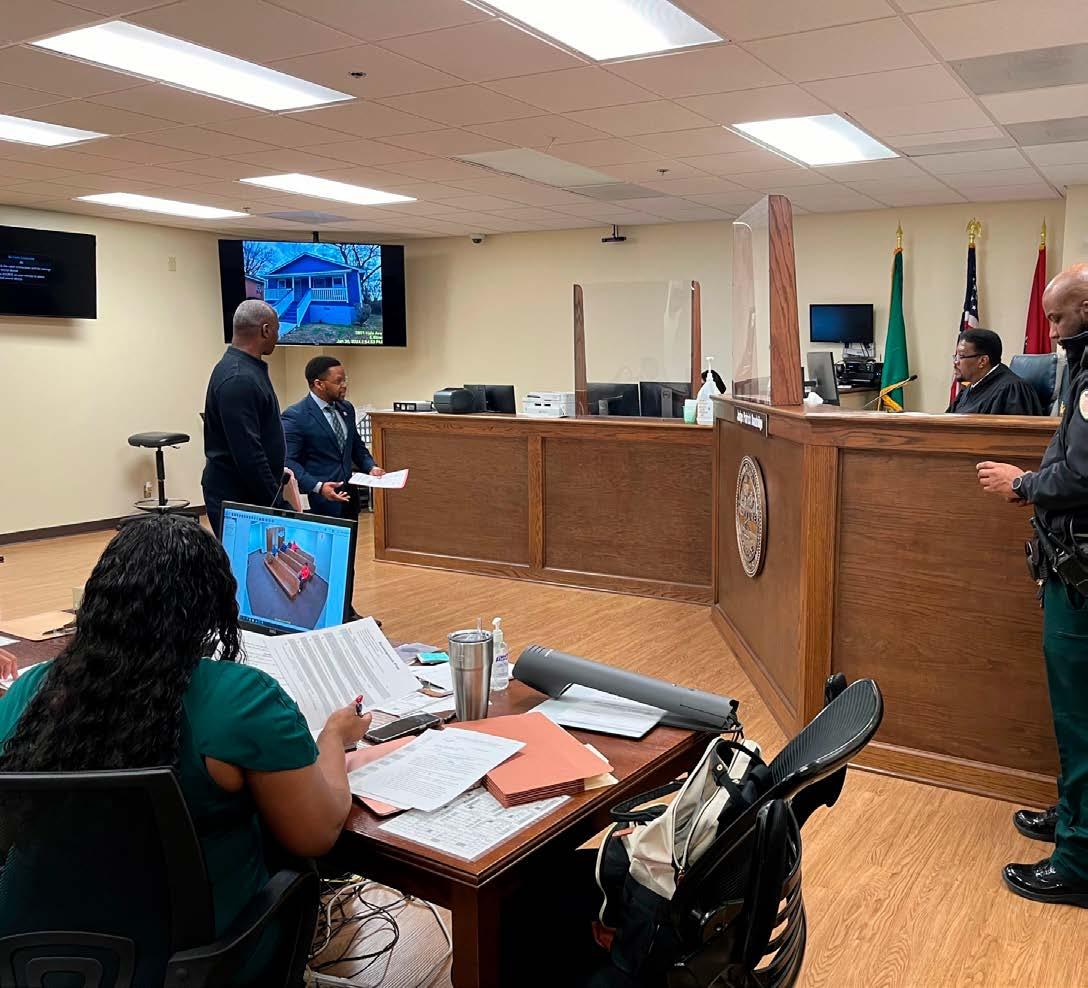

Before the establishment of the Environmental Court, code enforcement cases were spread amongst other court divisions. It was rare that a case ended with more than a $50 fine.1 For a relatively minor violation like grass being too high, this was a fair disposition. But imagine instead a rental unit with no heat. A landlord cited to court might be tempted to take the fine as a cost of doing business rather than correct the violation at a significantly higher cost.
At the initial setting of every case, the defendant can either disagree with the alleged violation and request a trial or agree and ask the court for permission to correct the violation and come into compliance with the law. Under the City’s continuing violation provision, which states “every day on which the violation continues shall constitute a separate offense,” the Court held cases open until the violation was corrected. The threat of accumulating daily fines helped the Court establish the goal of no disposition without compliance.
Still, some defendants refused to comply, whether out of financial self-interest or simple stubbornness. Contempt of municipal court was at that time only
1 Tennessee Constitution article 6 section 11 provides that “No fine shall be laid on any citizen of this State that shall exceed fifty dollars, unless it shall be assessed by a jury of his peers, who shall assess the fine at the time they find the fact, if they think the fine should be more than fifty dollars.” Known informally as “the $50 Fine Clause,” it appeared in the first Tennessee Constitution of 1796. There is merit to the idea, although no other state has anything like it, that one citizen should not have the power to reduce another to penury. In practice, it has created challenges.
punishable by a $5 fine. Refusal to comply or pay left the Court limited in its efficacy.
In a pivotal legislative move in 1991, the Tennessee Legislature established the 14th Division of the Shelby County General Sessions Court. Upon appointment to this new division, Judge Larry Potter resigned from Division 2 of the Memphis Municipal Court. Enabled under Chapter 772 of the Private Acts of 1982 as amended, the Court now had the ability to issue injunctions to vindicate its authority. Put simply, if defendants refused to come into compliance, the Court could hold them in contempt. Moreover, the Court could also enjoin future violations of the same law under penalty of contempt. The Shelby County Environmental Court continued to hear Memphis ordinance violations by means of an intergovernmental agreement with the City, but it is the court of original and sole jurisdiction for the Shelby County Code of Ordinances.
From its single Friday afternoon docket in 1983 until today, the Environmental Court has continued to grow.
In 1999, the first Community Court opened in Frayser in a purpose-built courtroom at the Northgate Shopping Center. Other Community Courts followed in Whitehaven, Millington, Orange Mound, Arlington, Hickory Hill, Cordova, and Crosstown. With Community Courts, the Environmental Court could hear quickly correctable housing ordinance violations without requiring a trip to the courtroom downtown at 201 Poplar. Community Courts also allow the interested community members to get a view of court proceedings firsthand in their neighborhoods.
Starting in 2002, the Court assumed concurrent jurisdiction2 with Circuit and Chancery Court over cases brought under the abatement of nuisances statute (TCA 29-3-101 et seq.), which facilitated the closure of establishments where a sufficient amount of criminal or activities deemed nuisances under the Tennessee Code.
To contend with an ever-growing caseload, the Court augmented its adjudicative capacity by appointing its first referee in 2007 and added a second referee in 2012
2 The Tennessee Court of Appeals upheld concurrent jurisdiction in State ex rel. Gibbons v. Club Universe, No. W2004-02761-COA-R3-CV, 2005 WL 1750358 (Tenn. Ct. App. July 26, 2005).


to accommodate the burgeoning environmental and traffic dockets.
Notably, the Court's purview expanded in 2010 to suits brought under the Neighborhood Preservation Act, empowering it to combat blight emanating from residential structures unfit for human habitation. Like the public nuisance statute, the Court has concurrent jurisdiction with its sister Circuit and Chancery Courts and is a court of record.
In 2018, Judge Larry Potter retired, recommending the successful appointment of Patrick Dandridge as the second Environmental Court Judge in Shelby County. Judge Dandridge brought firsthand and extensive knowledge of the Court’s procedures and scope of authority, having served first as the City Attorney assigned to Housing Code Enforcement and then Deputy Director of the same department. He was elected in 2018 and subsequently re-elected in 2022.
The Shelby County Environmental Court is a division of the General Sessions Criminal Courts. The General Sessions Criminal Court Clerk’s Office does all of its files and record keeping. Nevertheless, while it is a court of both criminal and civil jurisdiction, the majority of the cases the Court hears are civil in nature.
The Shelby County Environmental Court serves as the bastion of community welfare, adjudicating
cases stemming from municipal ordinances, county ordinances, and state statutes. These cases encompass a diverse array of infractions, including housing code violations, fire hazards, animal welfare breaches, littering offenses, and many others.
The Court adjudicates violations of city ordinances ranging from housing code breaches to illegal dumping, with enforcement agencies such as Housing Code Enforcement and Memphis Animal Services playing pivotal roles in upholding community standards. Similarly, county ordinances governing construction and zoning violations, health code breaches, and traffic infractions fall within the Court’s purview, which ensures holistic enforcement of regulatory frameworks.
Moreover, the Court assumes jurisdiction over state statutes delineating offenses such as public nuisances and wildlife code violations, underscoring its pivotal role in upholding public order and environmental integrity.
In 1983, the Court heard violations of the Memphis Code of Ordinances related to health, housing, fire, land subdivision, building, zoning, and animal control. While the docket grew in its first eight years of existence, a vast majority of cases were traffic tickets written by the Memphis Police Department. But when the Court was founded, the traffic matters shifted to those written by Shelby County Sheriff’s deputies. Along with cases written by the Tennessee Highway Patrol (“THP”), the Court hears hundreds of traffic cases every day. While the subject matter is identical, City ordinance traffic tickets are appealable to Circuit Court, while THP cases, arising out of the Tennessee Code, are criminal in nature, with their appeal to criminal courts.
City of Memphis Housing Code Enforcement is civil in nature and addresses municipal ordinance violations on residential and commercial properties. Code Enforcement issues most citations against the owners and tenants of these blighted properties. Most of these violations include parking on the grass, a junky yard (meaning improper outdoor storage), and structural disrepair.
Likewise, the Memphis Fire Department brings civil cases. These violations seek to prevent fires and protect human beings in the event of a fire. The former

is accomplished by citations for failure to maintain fire alarm and suppression systems; the latter by enforcing safe ingress and egress, as well as occupancy limits.
Several agencies bring cases with the goal of protecting animals from people and people from animals. Memphis Animal Services cites the majority of these cases into Environmental Court, including violations for allowing animals to run at large without a leash or other restraints, not properly vaccinating pets, or not appropriately getting animals spayed or neutered. The Memphis Police Department may issue a citation for a misdemeanor: criminal cruelty to animals. Further, Tennessee Wildlife Resources officers cite hunting and fishing cases.
The Shelby County Health Department and Shelby County Construction Code Enforcement both cite cases originating under the Shelby County Code of Ordinance. Shelby County Construction Code Enforcement specifically works from the Unified Development Code of Memphis and Shelby County. Like the City agencies mentioned earlier, these ordinance violations are civil in nature.
Enforcing the zoning code, officially known as the Unified Development Code of Memphis and Shelby County, means that Shelby County Code Enforcement has arguably the widest and most varied scope of activities for which someone may be cited to Environmental Court. Generally, the zoning code lays out what activities are permissible in every area of the County, as well as

ensuring the safety of new and existing structures through the inspection process. Shelby County Code Enforcement also brings a number of cases related to signs.
As a General Sessions court, the Environmental Court may only dispose of misdemeanor criminal violations. The only conceivable scenario where the Court might imprison someone for more than 11 months and 29 days is via a health measure brought by the Health Department to have someone complete a course of tuberculosis treatment. While such an amount of time would be highly unlikely, it is legally possible. The Health Department might also cite for sewage outcroppings, rodent and vermin harborage, and other violations related to health.
In 2018, the City of Memphis created the Environment Enforcement Department, a division of Code Enforcement solely dedicated to the problem of illegal dumping and litter prevention. Officers have used investigative tools like hidden cameras to hold litterers accountable. In response to this influx of new cases, the Court created two new litter dockets to address the growing problem in Memphis. Enforcement action can be pursued against the property owner or a person on the property, either a tenant in housing cases, or a litterer.
Since the NPA was enacted in 2004, NPA lawsuits have sought to bring nuisance vacant properties up to conditions suitable for human habitation. If the owner is unable or unwilling to do so, the Court may appoint a receiver to do the work. If the owner is unable or unwilling to pay the receiver’s lien, then the Court may order an auction to satisfy the receiver’s costs and fees.
Starting in 2014, the Court partnered with the University of Memphis School of Law to begin the Neighborhood Preservation Clinic. Under the supervision of licensed attorneys, law students have presented hundreds of cases in the Court, providing them with valuable experience and firsthand knowledge of the vacant and abandoned properties problems that Memphis faces.
In 2018, amendments to the NPA changed the nature of the suit from in personam to in rem jurisdiction. By making the suit against the property along with the threat

of the appointment of a receiver, it became prudent for neglected property owners to appear in court. After proper service, the Court can appoint a receiver regardless of the owner’s presence. This change not only results in more properties being brought into habitable condition, but it also reversed incentives. Instead of running from the courthouse to avoid necessary improvements, owners now run to it to avoid potential property loss.
As a problem-solving court or a court of compliance, the Environmental Court seeks to achieve a consensus outcome between both parties. Consequently, there are not many trials and even fewer appeals from the Environmental Court. However, if a party appeals, the chart below indicates where to appeal a particular case:
Type of Case Appellate Destination
Municipal Ordinance Circuit Court
Misdemeanor Criminal Criminal Court
Public Nuisance or NPA Court of Appeals
Guy Fieri’s “Diners, Drive-ins, and Dives” story about Good Fortune Co. and South of Beale can illustrate the paths to appealing a case originating in the Environmental Court that could arise out of a single block in Downtown Memphis. The below hypothetical situations illustrate the wide breadth of case types, the number of agencies involved, and the different paths those cases could take.
For example, inadequate heating in the residential units above South of Beale might come to the attention of the City of Memphis Housing Code Enforcement. A freelance car wash service in the parking lot, operating outside the Shelby County Unified Development Code acceptable use table, might bring inspectors from Shelby County Construction Code Enforcement to bring a case for improper use of the property. On appeal, either of these cases would go to Circuit Court.
Now imagine if Guy Fieri owned a French bulldog named Cash Fieri, and a production assistant left Cash in Fieri’s iconic red convertible with the top up in the summer. This might come to the attention of Memphis Animal Services officers, who may issue an ordinance violation citation, or the Memphis Police Department, who could cite the production assistant to the Environmental Court on state animal cruelty charges. Appeals of the Cash’s case brought by Memphis Animal Services would go to Circuit Court, but an appeal of the criminal animal cruelty offenses could go to Criminal Court.
South of Beale is known for its Duck Fried Rice. A migratory duck hunted out of season could cause its hunter to end up in the Court in a misdemeanor criminal action brought by the Tennessee Wildlife Resources agency. On appeal, this case would go to Criminal Court.
Not far down the street from Good Fortune and South of Beale is Earnestine and Hazel’s, now a famous dive bar, but a notorious brothel in the distant past. Property where prostitution or other illegal activity occurs might come before the Environmental Court under the Tennessee Public Nuisance Statute (TCA 29-3-101). On appeal, such a matter, as well as any case brought under the NPA, would go to the Court of Appeals.
In many cases, defendants cited to Court desire to come into compliance with the law but lack the physical and material means to do so. Elderly homeowners in particular may exhibit the toxic combination of deferred maintenance and fixed income. In years past, the Court sought whatever means at its disposal to assist indigent and elderly defendants. Community groups, trade organizations, churches, and non-profits have all volunteered to assist property owners, but the effort was ad hoc at best.
In the summer of 2023, the Memphis City Council authorized funds from the American Rescue Plan Act to assist indigent and elderly defendants cited to the Environmental Court. The Court has now engaged with dozens of vendors to connect those willing to assist those in need.
To make this program sustainable, the Court is in the midst of establishing the Shelby County Environmental Court Foundation. Modeled after similar programs run by the Drug and Veteran’s Courts, the Foundation will seek funding to continue assistance for those unable but willing to make legally required improvements to their properties. The Court is actively seeking partners to join with the Foundation’s work in bringing about a cleaner, safer, and healthier Memphis and Shelby County.
While the Shelby County Environmental Court serves as a potent instrument in combating blight and safeguarding community interests, it grapples with inherent limitations. Notably, the imposition of a nominal $50 fine underscores the need for robust enforcement mechanisms to deter recidivism and

promote compliance. Moreover, the Court’s jurisdictional constraints necessitate collaborative partnerships with law enforcement agencies and community stakeholders to effect meaningful change and mitigate environmental degradation.
The typical resolutions emanating from the Shelby County Environmental Court hinge on the principle of restorative justice aimed at ameliorating community welfare and fostering compliance with regulatory mandates. Fines, remedial actions, and Court-mandated interventions typify the Court’s approach, with the overarching objective of fostering a culture of civic responsibility and environmental stewardship.
In sum, the Shelby County Environmental Court epitomizes a beacon of justice and environmental stewardship, embodying the collective commitment
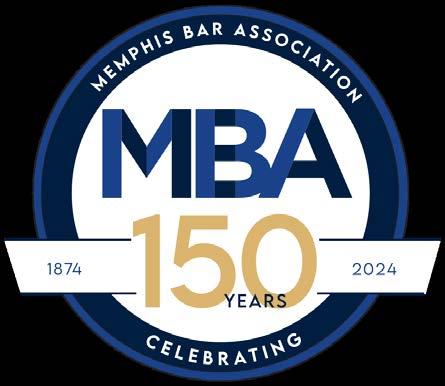
to fostering vibrant, healthy communities in Memphis and beyond. Through visionary leadership, judicious adjudication, and community engagement, the Court continues to chart a course towards a sustainable future, one case at a time.


Judge Patrick M. Dandridge is the presiding judge of Shelby County Environmental Court since 2018. He is a native Memphian and graduate of Georgetown University Law Center. Referee John Cameron is a graduate of the University of Memphis School of Law. Since 2007, he has served as a Referee of the Environmental Court.



BY KATIE BADGETT, MS, RDN, CSP, LD
Eating well and having a balanced diet is easier said than done—especially for busy working professionals! There is a vast amount of information (and misinformation) on how and what you should eat, making it difficult to know what really is the best and most effective when it comes to nutrition. As a Registered Dietitian, I recommend the following three key things:
• Eat three meals a day on a regular schedule, as this is important for blood sugar stability, digestion, and metabolism regulation. Consistency is key!
• Include a snack in between, ideally something with protein and fiber to keep you full longer, such as whole wheat crackers and peanut butter or cottage cheese and fruit.
• If this schedule is difficult for you, try eating 5-6 small meals a day.
• Include a protein, fat, and carb at each meal.
• For protein, focus on lean meats such as fish or chicken, eggs, or a plant-based protein like tofu, Greek yogurt, beans, or nut butters.
• Choose unsaturated fats like olive oil, avocados, almonds, pecans, pumpkin seeds, and fish. Olive oil, canola oil, sunflower oil, or flaxseed oil are great choices for cooking.
• Think about making a colorful plate! Choose a variety of fruits and vegetables to include in your meals, which will provide additional fiber along with key vitamins, minerals, and powerful antioxidants to support your health.
• Aim for 150 minutes a week or more of exercise, which is about 30 minutes 5 days a week.
• Choose something you enjoy so you are more likely to stick to it. Walking, hiking, playing tennis, biking, or swimming are all great ways to be active.
• Keep tennis shoes at your desk and take a walking break during the day if you are able.
• Around half of our daily energy needs should come from carbohydrates, but it is important to choose wisely. A good motto to keep in mind is “make half your grains whole”—in other words, half of the grains you eat in a day should be whole grains. Foods like oatmeal, brown rice, and whole wheat flour are high in fiber, which not only helps keep you full but is great for gut health and bowel regularity as well.
Try incorporating these things into your day, as making small changes will not only help support your body nutritionally and feel your best, but they may decrease your risk of certain cancers, improve insulin sensitivity, and more.
Katie Badgett, MS, RDN, CSP, LDN, is a Registered Dietitian. She has worked for Agilix Health since October 2023. She previously worked at LeBonheur Children’s Hospital as a dietitian on the Cystic Fibrosis Team followed by 11 years at St. Jude Children’s Research Hospital as a pediatric oncology dietitian.




BY STEPHEN LEFFLER
covers jury and bench trials from December 14, 2023 through May 31, 2024
1. PFC Memphis Borrower, LLC v. Ronald Talley, No. CT-2504-23
Bench Trial on February 15, 2024
Attorney for Plaintiff: R. Alan Pritchard
Attorney for Defendant: Ronald Talley proceeded pro se.
Claims at issue: Breach of contract (landlord/tenant)
• Verdict: Judge Corbin-Johnson found for the plaintiff and awarded $10,270.19 in damages.
1. Shondra Shields and Gerald Shields v. Julie Hill, No. CT-004455-18
Jury Trial on April 2, 2024
Attorney for Plaintiff: Jack Leach, Jr.
Attorney for Defendant: Andrew H. Owens
Claims at issue: Car accident/negligence
• Verdict: The jury found for Plaintiff and awarded $4,669.00 in chiropractic expenses only.
2. Allentown Community v. Christon Taylor, No. CT0583-24
Bench Trial on April 19, 2024
Attorney for Plaintiff: Mike Flexsenhar
Attorney for Defendant: Christon Taylor proceeded pro se. Claims at issue: Breach of contract (landlord/tenant)
• Verdict: Judge Chumney found for Plaintiff and awarded possession and $3,026.01 in damages.
3. Kristopher Moss v. Dave A. Turner, Individually and d/b/a Claybrook Farms d/b/a Claybrrok Farms Meat Company,
Jury Trial on March 22, 2024
Attorney for Plaintiff: R. Deniger Cobb
Attorney for Defendant: Ashleigh C. Kiss
Claims at issue: Car accident/negligence
• Verdict: Defendant admitted liability before trial. On the issue of damages, the jury found for Plaintiff and awarded $12,500.
No cases tried to verdict this reporting period.
1. Christopher O. Thomas v. Rachelle G. Smith, No. CT-002985-13
Jury Trial on December 13, 2023
Attorney for Plaintiff: Malcolm B. Futhey III
Attorney for Defendant: Craig B. Flood II
Claims at issue: Car accident/negligence
• Verdict: The jury found for Plaintiff and awarded $7,278,171.91 in damages, divided as follows: Pain and Suffering-Past: $400,000.00; Pain and SufferingFuture: $450,000.00; Permanent Impairment/ Disfigurement: $400,000.00; Loss of Enjoyment of Life-Past: $400,000.00; Loss of Enjoyment of Life-Future: $450,000.00; Medical Care-Past: $657,139.91; Medical Care-Future: $3,000,000.00; Loss of Earning CapacityPast: $161,032.00; Loss of Earning Capacity-Future: $1,360,000.00. The verdict was reduced by 23% because of comparative fault, so the final judgment was $4,737,192.37.
2. Matthew Johnson v. Jamal Ferby and Ashley Bass, No. CT-5085-23
Bench Trial on April 5, 2024
Attorney for Plaintiff: Andrew R. Francisco
Attorney for Defendant: Jamal Ferby and Ashley Bass proceeded pro se.
Claims at issue: Breach of contract (landlord/tenant)
• Verdict: Judge Smith found for Plaintiff and awarded $12,000.00 in damages.
3. Madelyn P. Williams v. Martina L. Carey, No. CT-5060-21
Jury Trial on April 10, 2024
Attorney for Plaintiff: Eric J. Lewellyn
Attorney for Defendant: Christopher L. Nearn
Claims at issue: Car accident/negligence
• Verdict: Defendant admitted liability before trial. On the issue of damages, the jury found for Plaintiff and awarded $58,636.91 (Loss of Earning Capacity: $12,433.33; Past Pain and Suffering: $9,870.00; Future Pain and Suffering: $10,083.50; Past Loss of Enjoyment of Life: $3,916.67; Future Loss of Enjoyment of Life: $6,500.08; Permanent Injury: $15,833.33).

1. Juanita Hall v. Richard T. Elam, No. CT-2999-19
Bench Trial on April 25, 2024
Attorney for Plaintiff: Jason Dollard
Attorney for Defendant: Richard Elam proceeded pro se.
Claims at issue: Car accident/negligence
• Verdict: Judge Hurd found for Plaintiff and awarded $40,412.00 in damages (Medical Expenses: $5,412.00; Non-Economic Damages: $35,000.00).
1. Miller Creek Apartments v. Tamara Harris and other occupants of 3731 Parkline Dr., Apt. 304, No. CT-5474-23
Bench Trial on April 19, 2024
Attorney for Plaintiff: Bruce Feldbaum
Attorney for Defendant: Tamara Harris and the other defendants proceeded pro se.
Claims at issue: Breach of contract (landlord/tenant)
• Verdict: Judge Wooten found for Plaintiff and awarded possession and $11,624.01 in damages.
2. Willie Autmon and Sarah J. Adams-Autmon v. Jonathan Jamison, No. CT-4692-22
Jury Trial on April 23, 2024
Attorney for Plaintiff: Kenneth M. Margolis
Attorney for Defendant: Nicholas J. Owens, Jr.
Claims at issue: Car accident/negligence
• Verdict: The jury found for Plaintiff and awarded $21,420.00 in damages (medical expenses only)
1. Dhankhar, LLC v. Kiram Sider, No. CT-5159-23
Bench Trial on April 30, 2024
Attorney for Plaintiff: Jason M. Goldstein
Attorney for Defendant: John E. Dunlap
Claims at issue: Breach of contract (landlord/tenant)
• Verdict: Judge Wagner found for Plaintiff and awarded possession and $1,800.00 in damages.
2. Bridgeport Manor Apartments v. Peaches
Crawford, No. CT-0960-24
Bench Trial on May 1, 2024
Attorney for Plaintiff: S. Joshua Kahane
Attorney for Defendant: Peaches Crawford proceeded pro se.
Claims at issue: Breach of contract (landlord/tenant)
• Verdict: Judge Wagner found for Plaintiff and awarded $4,751.00 in damages.
1. William Staten v. Mark Woodard, No. CT-1157-20
Bench Trial on January 12, 2024
Attorney for Counter-Plaintiff: Edward Bearman
Attorney for Counter-Defendant: Larry Fitzgerald
Claims at issue: Breach of contract (real estate)
• Verdict: Judge Dandridge found for Counter-Plaintiff and awarded $41,801.00 in damages.
1. Kendal Tomlin v. Bernard Steel and City of Memphis, No. CT-3911-20
Bench Trial on February 6, 2024
Attorney for Plaintiff: W. David Cheek
Attorney for Defendant: Joseph M. Fletcher
Claims at issue: Car accident/negligence
• Verdict: Judge Kight found for Plaintiff and awarded $10,084.00 in damages.
2. Federal National Mortgage Association and Jake Tigert v. Fasil Kebede, No. CT-004033-18
Bench Trial on February 14, 2024
Attorney for Plaintiffs: John R. Candy
Attorney for Defendant: Mark Grai
Claims at issue: Breach of contract (real estate – lost rent)
• Verdict: Judge Kight found for Plaintiffs and awarded $244,365.00 in damages.
The Circuit Court Report reports on cases that are tried to verdict. Reported cases include cases involving pro se parties as long as both sides present evidence, even if the evidence consists solely of the testimony of the pro se party. Bench trials are reported where both parties present evidence. The Circuit Court Report does not include cases dismissed by decree (e.g. summary judgment) or consent judgments entered with the court. Minor settlements and divorce decrees are not reported. Default judgments are not reported unless the writ of inquiry was contested.
If any readers know of cases that meet these requirements for reporting and yet are not reported, or know of cases that, while not meeting the requirements, may have issues or rulings of general interest to the bar members, please let us know by email at memphisbarassociation@gmail.com. Include a brief description, the name of the case and the docket number. If they meet the requirements, or otherwise qualify, they will be reported in the next edition of the Memphis Bar Magazine.


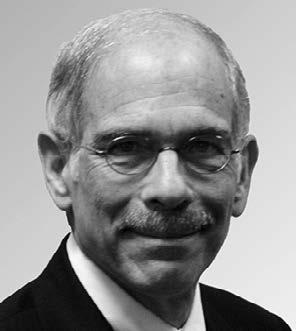
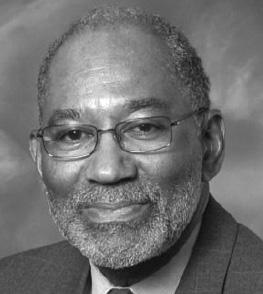

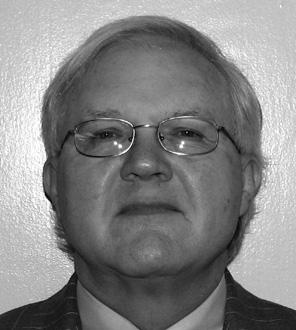




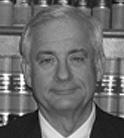


covers jury and bench trials from January 1, 2024–June 30, 2024
1. USA v. Matthew Culver, No. 21-10083
Trial from January 8-9, 2024
Attorneys for Prosecution: Adam Davis, Hillary Parham, Lynn Crum, and Caroline Parish
Attorneys for Defendant: David Camp
• Charges in Indictment: One count of conspiracy to possess with intent to distribute more than 50 grams of actual methamphetamine.
• Verdict: Not guilty.
2. USA v. Darryl Anthony McNeal, No. 22-10081
Trial from February 5-7, 2024
Attorneys for Prosecution: Adam Davis and Caroline Parish
Attorney for Defendant: Taurus Bailey
• Charges in Indictment: Two counts of distribution and possession with intent to distribute more than 50 grams of actual methamphetamine.
• Verdict: Guilty on all counts.
3. USA v. Markell Young, Octavius Ferguson, and Jordan Powell, No. 21-10112
Trial from April 8-29, 2024
Attorneys for Prosecution: Hillary Parham and Cesar RiveraGiraud
Attorney for Defendant Markell Young: Matt Maddox
Attorney for Defendant Octavius Ferguson: Steve West
Attorney for Defendant Jordan Powell: Lee Gerald
• Charges in Indictment: The Indictment alleged RICO crimes against five defendants allegedly affiliated with the 83rd Hoover Criminal Gang, which is a “violent crime street gang” that operated throughout Western Tennessee, California, and elsewhere. The Indictment further alleged that the gang members engaged in criminal acts such as murder, attempted murder, and drug trafficking. This report summarizes the counts in the Second Superseding Indictment that went to trial and does not include those against defendants who pled guilty before trial. All counts in the Indictment were alleged against Young, Ferguson, and Powell. Count 1 alleged conspiracy to commit murder in aid of racketeering. Count 2 alleged murder in aid of racketeering. Count 3 alleged use of a firearm during and in relation to a crime of violence in
violation of 18 U.S.C. § 924(c). Count 4 alleged causing death through use of a firearm in violation of 18 U.S.C. § 1111.
• Verdict: The jury found Young not guilty on Counts 1, 2, and 4 and guilty on Count 3. The jury found Ferguson and Powell guilty on all counts.
No trials.
1. James Brad Carter v. Jeffrey Scott Davis and Terry Davis d/b/a Terry Davis Auto Sales, No. 20-2358
Trial from February 26-28, 2024
Attorney for Plaintiff: Louis Chiozza, Jr.
Attorneys for Defendants: Jennifer Sutch Slager and Forrest Robert Jenkins
• Claims in Amended Complaint: This case involved a February 10, 2014 car accident in which Defendant Jeffrey Scott Davis allegedly rear-ended Plaintiff while driving a pickup truck owned by Defendant Terry Davis d/b/a Terry Davis Auto Sales and a March 9, 2015 car accident in which Defendant David Newsom allegedly T-boned Plaintiff at a four-way stop. During discovery, the court dismissed Plaintiff’s claims against Newsom for lack of subject-matter jurisdiction.
• Verdict: The jury found for Plaintiff and awarded a total of $70,000 in damages ($23,755.33 in medical expenses, $36,593.15 for pain and suffering, and $9,651.52 in loss of earnings).
2. Jerrod Bishop, Individually and on Behalf of all Wrongful Death Beneficiaries of Jared Austin
Bishop, Deceased v. AVR Express, LLC; Abdihakim Yusef Omar, and John Does 1-10, No. 22-2171
Trial from March 4-6, 2024
Attorney for Plaintiffs: Charles Edwards, Frank L. Watson
III, Marc Boutwell, William Burns, and William Routt III
Attorney for Defendants AVR Express and Omar: Issac Lew, Patrick Quinn, and Stephen Vescovo
• Claims in Complaint: This case involved a fatal car accident: a Freightliner TT allegedly made a sudden U-turn on Shelby

Drive that blocked most lanes of traffic in both directions and resulted in Plaintiff’s father, who was driving a Dodge Challenger, striking the center of the trailer and passing away from his injuries. The complaint alleged commonlaw negligence; respondeat superior; negligent hiring, supervision, and retention; wrongful death; and gross negligence and sought punitive damages.
• Verdict: The jury found Plaintiff’s son 35% at fault and Defendants 65% at fault and did not find Plaintiff’s son 50% or more at fault. The jury awarded $4.5 million in damages for loss of future earning capacity. The court has not yet ruled on Defendants’ request for remittitur.
3. USA v. Melvin Anderson, No. 22-20155
Trial from March 25-27, 2024
Attorneys for Prosecution: Regina Thompson and Raven Icaza
Attorneys for Defendant: Tyrone Paylor
• Charges in Indictment: unlawful possession of a firearm by a felon in violation of 18 U.S.C. § 922(g).
• Verdict: Guilty on count 1.
4. USA v. Tommie Conner, No. 21-20216
Trial from June 24-26, 2024
Attorneys for Prosecution: Greg Wagner and Jermal Blanchard
Attorney for Defendant: Michael Scholl
• Charges in Indictment: One count of unlawful possession of a firearm by a felon in violation of 18 U.S.C. § 922(g).
• Verdict: Guilty. Because of the Supreme Court’s decision in Erlinger v. United States, No. 23-370, 2024 WL 3074427 (June 21, 2024), the jury must decide whether a defendant’s prior felony convictions count as predicate convictions under the Armed Career Criminal Act. The jury found that Conner had at least three prior felony convictions that were each committed on occasions different from one another and was thus an armed career criminal under the ACCA.
1. USA v. Tomarcus Baskerville, Thomas Smith, Courtland Springfield, and Michael Hobson, No. 22-20068
Trial from January 8-12 and January 23-February 5, 2024
Attorneys for Prosecution: Beth Boswell, Neal Oldham, Raven Icaza, and William Bateman
Attorneys for Defendant Tomarcus Baskerville: Jocelyn Henderson and Anne Tipton
Attorneys for Defendant Thomas Smith: Leslie Miller
Attorneys for Courtland Springfield: John H. Parker II and Coleman Garrett
Attorneys for Defendant Michael Hobson: Stephen Leffler
• Charges in Indictment: The Second Superseding Indictment alleged RICO crimes against fifteen defendants allegedly affiliated with the Traveling Vice Lords / Junk Yard
Dogs “violent crime street gang” and further alleged that the gang members engaged in criminal acts such as murder, attempted murder, and drug trafficking. This report summarizes the counts in the Second Superseding Indictment that went to trial and does not include those against defendants who pled guilty before trial.
Count 1 (against Baskerville, Smith, and Springfield) alleged conspiracy to participate in racketeering activity. Count 2 (against Baskerville) alleged attempted murder of S.M. Count 3 (against Baskerville) alleged use of a firearm during and in relation to a crime of violence under 18 U.S.C. § 924(c). Count 4 (against Baskerville and Smith) alleged attempted murder of W.P. Count 5 (against Baskerville and Smith) alleged use of a firearm during and in relation to a crime of violence under 18 U.S.C. § 924(c). Count 6 (against Baskerville and Springfield) alleged attempted murder of M.W. Count 7 (against Baskerville and Springfield) alleged use of a firearm during and in relation to a crime of violence under 18 U.S.C. § 924(c).
Count 8 (against Baskerville and Springfield) alleged attempted murder of M.P. Count 9 (against Baskerville and Springfield) alleged use of a firearm during and in relation to a crime of violence under 18 U.S.C. § 924(c). Count 10 (against Baskerville and Springfield) alleged murder in aid of racketeering. Count 11 (against Baskerville and Springfield) alleged causing death by use of a firearm during and in relation to a crime of violence in violation of 18 U.S.C. §§ 924(j), 924(c), and 1111(a). Count 12 (against Baskerville and Springfield) alleged attempted murder of D.D. Count 13 alleged use of a firearm during and in relation to a crime of violence under 18 U.S.C. § 924(c). Count 14 (against Baskerville and Springfield) alleged attempted murder of L.S. Count 15 (against Baskerville and Springfield) alleged use of a firearm during and in relation to a crime of violence under 18 U.S.C. § 924(c). Count 16 (against Baskerville and Springfield) alleged attempted murder of T.M. Count 17 (against Baskerville and Springfield) alleged use of a firearm during and in relation to a crime of violence under 18 U.S.C. § 924(c). Count 18 alleged (against Baskerville and Springfield) alleged attempted murder of C.M. Count 19 against Baskerville and Springfield) alleged use of a firearm during and in relation to a crime of violence under 18 U.S.C. § 924(c). Count 20 (against Baskerville and Hobson) alleged murder in aid of racketeering. Count 21 (against Baskerville and Hobson) alleged using death by use of a firearm during and in relation to a crime of violence in violation of 18 U.S.C. §§ 924(j), 924(c), and 1111(a). Count 22 (against Hobson) alleged possession of ammunition by a felon in violation of 18 U.S.C. § 922(g).
• Verdict: Baskerville and Smith were found guilty on all counts against them. Springfield was found guilty on counts 1 and 10-19 and not guilty on counts 6-9. Count 22 against Hobson was dismissed before trial, and Hobson was found not guilty on counts 20 and 21.

2. USA v. Charlie Gibson, No. 23-20084
Trial from February 12-13, 2024
Attorneys for Prosecution: Jermal Blanchard and Greg Wagner
Attorneys for Defendant: Greg Gookin and Everett Hoagland
• Charges in Indictment: The indictment alleged four counts: (1) unlawful possession of a firearm by a felon in violation of 18 U.S.C. § 922(g) on December 16, 2021; (2) possession with intent to distribute less than 50 kilograms of marijuana; (3) possession of a firearm in furtherance of a drug trafficking crime in violation of 18 U.S.C. § 924(c); and (4) unlawful possession of a firearm by a felon in violation of 18 U.S.C. § 922(g) on July 4, 2022.
• Verdict: Guilty on all counts.
1. Kesha Gray v. Brett Barnett, Eugenia Sumner, and Bret Simonsen, No. 20-2947
Trial from February 5-8, 2024
Attorneys for Plaintiff: Brice Timmons, Craig Edington, Bryce Ashby, and Melissa Stewart
Attorneys for Defendants: Robert Meyers, Aubrey Greer, and Danielle Rassoul
• Claims in Amended Complaint: Malicious prosecution in violation of the Fourth Amendment and 42 U.S.C. § 1983 (against all Defendants); false arrest in violation of the Fourth Amendment and 42 U.S.C. § 1983 (against all Defendants); and use of unwarranted and excessive force under 42 U.S.C. § 1983 (against Barnett only). The Amended Complaint also alleged these claims against other individual defendants and § 1983 claims against Shelby County’s allegedly unconstitutional practices regarding its use-of-force and arrest policies and a failure-to-train claim. The court granted summary judgment for the other individual defendants and Shelby County, and trial proceeded only as to Barnett, Sumner, and Simonsen.
• Verdict: The jury found for Plaintiff on her claims against Barnett and awarded her $70,000 in damages ($50,000 in compensatory damages and $20,000 in punitive damages). The court awarded post-judgment interest at a rate of 4.76% and denied Plaintiff’s request for pre-judgment interest. The jury found for Defendants Sumner and Simonsen on Plaintiff’s claims against them.
1. Hanover American Insurance Company. v. Tattooed Millionaire Entertainment, LLC; Christopher C. Brown, and John Falls, No. 20-2834
Bench Trial on January 23, 2024
Attorneys for Plaintiff: Jeremy Grabill, Mark Dodart, and Stuart Richeson
Attorneys for Defendant Tattooed Millionaire Entertainment: John Wesley Christopher and Charles Waldman
Attorneys for Defendant: Christopher C. Brown: John Wesley Christpher
Attorneys for Defendant John Falls: Malcolm Brown Futhey III
• Claims in Complaint: Interpleader to resolve multiple claims to insurance proceeds. After a 2016 jury trial related to insurance claims submitted to Hanover by Defendants in connection with a 2015 arson fire and alleged theft at the House of Blues recording studio in Memphis, the jury found that TME and Brown had made material misrepresentations with the intent to deceive and committed unlawful insurance acts during the claim process, which allowed Hanover to recover advance payments it had made to them. The jury found that Falls did not make such misrepresentations or commit such unlawful acts and awarded him the policy’s maximum amount of $2.5 million. In this interpleader case, Hanover alleged that Falls’ $2.5 million was subject to competing claims and sought a declaration that the $2.5 million award was null and void under Tennessee public policy.
• Verdict: The Court held that Falls was entitled to recover $2,066,217.30 of the insurance policy, Brown and TME were not entitled to the remainder of the policy funds in light of Tennessee public policy, and that the intervenors’ claim was moot.
Trial from January 29-February 5, 2024
Attorneys for Prosecution: Eileen Kuo and Libby Rogers Attorneys for Defendant: Genna Lutz and Barry McWhirter
• Charges in Indictment: Count 1 alleged knowing escape from Dismas Charities, Inc. (where Defendant was incarcerated). Count 2 alleged a Hobbs Act robbery of a Circle K. Count 3 alleged use of a firearm during and in relation to a crime of violence under 18 U.S.C. § 924(c). Count 4 alleged a Hobbs Act robbery of a Subway. Count 5 alleged use of a firearm during and in relation to a crime of violence under 18 U.S.C. § 924(c). Count 6 alleged a Hobbs Act robbery of a Subway. Count 7 alleged use of a firearm during and in relation to a crime of violence under 18 U.S.C. § 924(c). Count 8 alleged a Hobbs Act robbery of Half Off Shoes. Count 9 alleged use of a firearm during and in relation to a crime of violence under 18 U.S.C. § 924(c). Count 10 alleged a Hobbs Act robbery of a Circle K. Count 11 alleged use of a firearm during and in relation to a crime of violence under 18 U.S.C. § 924(c). Count 12 alleged a Hobbs Act robbery at a Dollar Tree. Count 13 alleged use of a firearm during and in relation to a crime of violence under 18 U.S.C. § 924(c). Count 14 alleged a Hobbs Act robbery of a Mapco. Count 15 alleged use of a firearm during and in relation to a crime of violence under 18 U.S.C. § 924(c). Count 16 alleged a Hobbs Act robbery at a Circle K. Count 17 alleged use of a firearm during and in relation to a crime of violence under 18 U.S.C. § 924(c). Count 18 alleged a Hobbs Act robbery at a Mapco. Count

19 alleged use of a firearm during and in relation to a crime of violence under 18 U.S.C. § 924(c). Count 20 alleged a Hobbs Act robbery at a Family Dollar. Count 21 alleged use of a firearm during and in relation to a crime of violence under 18 U.S.C. § 924(c). Count 22 alleged a Hobbs Act robbery at a Circle K.
• Verdict: Defendant entered an open guilty plea to Count 1 a few weeks before trial began. The jury returned a verdict of guilty on Counts 2-3 and 6-22 and n guilty on Counts 4-5. The jury hung on Counts 20 and 21, and the Court declared a mistrial on those counts only.
3. USA v. Ashley Grayson and Joshua Grayson, No. 23-20121
Trial from March 25-29, 2024
Attorneys for Prosecution: Neal Oldham and Bryce Phillips Attorneys for Defendant Ashley Grayson: Scott Palmer, Leslie Ballin, and Michael Levine
• Attorneys for Defendant Joshua Grayson: Michael Scholl
• Charges in Indictment: one count of conspiracy to use interstate commerce facilities with intent that a murder-forhire be committed in violation of 18 U.S.C. § 1958.
• Verdict: The jury found Ashley Grayson guilty and Joshua Grayson not guilty.
4. Carolyn Ann Jones v. Bway Corporation d/b/a Mauser Packaging Solutions and Randy Duerksen, No. 22-2683
Trial from April 22-24, 2024
Attorneys for Plaintiff: James King, Jr.
Attorneys for Defendant: Flynne Dowdy, Jeffrey Smith, John Joseph, Todd Wozniak, and Cynthia Burnside
• Claims in Complaint: Workers’ compensation retaliation, wrongful termination because of alleged retaliation under the Tennessee Human Rights Act, sexual harassment under the Tennessee Human Rights Act, and battery under Tennessee common-law.
• Verdict: The jury found for Defendant on all of Plaintiff’s claims.
5. Qorvo, Inc. v. Akoustis Technologies, Inc. and Akoustis, Inc., No. 21-1417 in the District of Delaware
Trial from May 6-17, 2024
Attorneys for Plaintiff: Jake Blumenfeld, Anthony Raucci, Eric Gill, Jennifer Ayers, Jeremy Tigan, Jonathan DeFosse, Robert Masters, Roy Jung, Thomas Carr, Timothy Cremen, Trevor Quist, and Zachary Alper
Attorneys for Defendant: David Elkins, David Jakopin, David Stanton, Dianne Sweeney, Matthew Stanford, Riccardo Macchiaroli, Robert Fuhrer, Robert Perez, Ronald Golden, Ronald Lemieux, Ryan Selness, Shani Rivaux, Stephen Brauerman, Theresa Roozen, Victoria Smith, and Xiaomei Cai.
• Claims in Second Amended Complaint: Violations of the Defend Trade Secrets Act, the North Carolina Trade Secrets
Protection Act, unfair and deceptive trade practices under North Carolina law, and patent infringement.
• Verdict: The jury found for Qorvo on its claims for trade secret misappropriation under the Defend Trade Secrets Act and the North Carolina Trade Secrets Protection Act. The jury found that Akoustis was unjustly enriched for misappropriating Qorvo’s trade secrets and awarded $31,315,215.00 in damages and also found the misappropriation willful and malicious and awarded $7,000,000 in exemplary damages. The jury found for Akoustis on Qorvo’s unfair and deceptive trade practices claim under North Carolina law. The jury found that Akoustis infringed the four patent claims at issue in the trial and awarded $139,904 in damages for infringement of the two claims in the ’018 patent and $139,904 in damages for infringement of the two claims in the ’755 patent. The jury did not find Akoutis’ patent infringement willful.
1. Michael Iannone et al. v. AutoZone Inc. et al., No. 19-2779
Trial from October 23-31, 2023
Attorneys for Plaintiffs: Jame H. White, IV; D.G. Pantazis, Jr; and Lange Clark
Attorneys for Defendants: AutoZone Inc., Bill Giles, Brian Campbell, Steve Beussink, Kristin Wright, Michael Womack, Kevin Williams, and Rick Smith: Brian T. Ortelere, Jeremy P. Blumenfeld, Abbey M. Glenn, David A. Thornton, Emily Byrne, John S. Golwen, Jonathan Edward Nelson, Mathew J. McKenna, and Samuel Block
Attorneys for Defendants: Northern Trust Corporation and Northern Trust, Inc.: David Tetrick, Amanda Ann Sonneborn, Danielle Chattin, Darren Shuler, John L. Ryder, and Patrick G. Walker
Attorney for Objector: Reyes Holdings, L.L.C.: Andrew E. Tauber
Attorneys for Miscellaneous Party Prudential Retirement Insurance and Annuity Company: Caroline A. Wong and Mark B. Blocker
Attorneys for Miscellaneous Party: Willis Towers Watson US LLC: John E. Joseph
• Claims in Amended Complaint: An ERISA claim for breach of fiduciary duty related to alleged failures to properly select, maintain, and monitor investments and investment options for Plaintiffs’ 401(k) plan.
• Verdict: The Court granted in part and denied in part AutoZone and Northern Trust’s summary-judgment motions and denied plaintiffs’ motion for partial summary judgment on March 29, 2024, after trial was completed. Awaiting findings of fact and conclusions of law after a bench trial.
2. MLGW v. Factory Mutual Insurance Company
d/b/a FM Global, No. 22-2065
Trial from February 26-March 6, 2024

Attorneys for Plaintiff: Amy Sterling and Michael McLaren
Attorneys for Defendant: Jefferson Orr and Blake Creekmur
• Claims in Complaint: When Memphis received 10 inches of snow in February 2021, part of MLGW’s underground parking garage failed suddenly due to the weight of the snow, which rendered approximately 1/4 the garage unavailable for parking. MLGW submitted a proof of loss to FM Global estimating that repairs would cost between $1,934,600-$3,800,000. FM Global asserted that it was not liable under the policy, and MLGW sued FM Global for declaratory judgment and breach of contract.
• Verdict: The jury found that MLGW sustained a covered loss under the FM Global insurance policy and that FM Global did not show that an exclusion applied to prevent recovery under the policy. The jury awarded $3,647,742.40 in damages for FM Global’s breach of the insurance policy and found that MLGW was entitled to pre-judgment interest.
3. International Paper Co. v. Beazley Insurance Company, Inc., No. 22-2789
Trial from April 29-May 1, 2024
Attorneys for Plaintiff: John Sylvester, Laura Veith, Timothy Townsend, and Jason Callen
Attorneys for Defendant: Bradford Box, Eugene Murphy, Jerry Kizer, Matthew Burke, William Daley, and Wystan Ackerman
• Claims in Complaint: This insurance-coverage case arose out of theft committed against IP by one of its employees, who spent years stealing money from IP through a scheme that illegally funneled tens of millions of dollars to entities controlled by the employees and his half-brother. IP sued sm Beazley for breach of its contractual obligations under its commercial crime policy. IP also sued Zurich American Insurance Company for breach of contract, and IP and Zurich reached a settlement during discovery.
• Verdict: IP and Beazley settled and stipulated to the dismissal of the case with prejudice after the third day of trial.
4. USA v. Stephen Brown and Diane Moss, No. 2320211
Trial from May 17-29, 2024
Attorneys for Prosecution: Ariel Glasner, David Hamstra, and Carroll Andre
Attorney for Defendant Stephen Brown: Michael Scholl
Attorney for Defendant Diane Moss: Coleman Garrett
• Charges in Indictment: Two counts against both Defendants of aiding and abetting fraud regarding Economic Injury Disaster Loans; two counts against both Defendants of aiding and abetting fraud regarding Paycheck Protection Program loans.
• Verdict: The jury found both Brown and Moss not guilty on all counts.
1. USA v. Ronnie Robertson, No. 23-20024
Trial from January 23-25, 2024
Attorneys for Prosecution: Regina Thompson and Stephen Hall
Attorneys for Defendant: Robert Thomas and Ned Germany
• Charges in Indictment: The indictment alleged three counts: (1) carjacking a 2007 GMC Yukon, (2) using a firearm during a carjacking in violation of 18 U.S.C. § 924(c), and (3) unlawful possession of a firearm by a felon in violation of 18 U.S.C. § 922(g).
• Verdict: Robertson pleaded guilty to Count 3 of the indictment during the second day of trial, so the jury did not reach a verdict.
2. USA v. Kendrick Watson, No. 23-20189
Trial from February 20-23, 2024
Attorneys for Prosecution: Greg Allen and Naya Bedini
Attorneys for Defendant: Terrell Tooten
• Charges in Indictment: (1) attempt to possess with the intent to distribute 500 or more grams of a cocaine mixture; (2) possession with intent to distribute a mixture containing fentanyl; (3)-(7) possession of 5 firearms in furtherance of a drug trafficking crime in violation of 18 U.S.C. § 924(c) ; and (8)-(12) unlawful possession of 5 firearms by a felon in violation of 18 U.S.C. § 922(g).
• Verdict: Guilty on counts 2-12. The court declared a mistrial on count 1.
3. USA v. Glenn Miller, No. 23-20148
Trial from February 26-27, 2024
Attorneys for Prosecution: Regina Thompson and Greg Wagner
Attorneys for Defendant: Ned Germany and Robert Thomas
• Charges in Indictment: (1) carjacking a 2009 Chevrolet HHR; (2) use of a firearm during and in relation to the carjacking of a 2009 Chevrolet HHR in violation of 18 U.S.C. § 924(c); (3) carjacking a 2020 Hyundai Sonata; (4) use of a firearm during and in relation to the carjacking of a 2020 Hyundai Sonata in violation of 18 U.S.C. § 924(c); (5)-(7) unlawful possession of 3 firearms by a felon in violation of 18 U.S.C. § 922(g). The defendant pled guilty to counts 3-7 before trial.
• Verdict: Guilty on counts 1-2.
4. USA v. Nathan Lucas, D.P.M., No. 21-20199
Trial from March 11-18, 2024
Attorneys for Prosecution: Justin Woodward and Sara Elizabeth Porter
Attorneys for Defendant: Arthur Horne and Robert Spence
• Charges in Indictment: This case involved healthcare fraud in violation of 18 U.S.C. §§ 1347 and 2. The defendant’s fraudulent scheme involved causing DNL Pharmacy and Advanced Foot Pharmacy to submit approximately

$3,020,556.54 in false and fraudulent Medicare claims for dispensing expensive foot bath medications that were not medically necessary and were not eligible for reimbursement. Defendant obtained Medicare reimbursement for the entire $3,020,556.54. Defendant also caused DNL Pharmacy to submit $978,165.56 in false and fraudulent claims to TennCare for dispensing foot bath medications that were not medically necessary and not eligible for reimbursement. TennCare reimbursed $818.69.
• The indictment contained five counts, each for one claim for seeking and obtaining reimbursement from Medicare for dispensing foot bath medications that were not medically necessary and were not eligible for reimbursement.
• Verdict: Guilty on all counts.

MBA Annual Meeting 2024
Thursday, December 12
11:30am-1:30pm

5. USA v. Michael Baxter and Demarquecio Tate, No. 23-20174
Trial from March 26-29, 2024
Attorneys for Prosecution: Michelle Kimbril-Parks and Greg Allen
Defendant Michael Baxter proceeded pro se with Barry McWhirter as elbow counsel.
Attorney for Defendant Demarquecio Tate: Taurus Bailey
• Charges in indictment: Count 1 against Baxter and Tate: conspiracy to possess with intent to distribute a mixture containing methamphetamine (with 500 grams or more of methamphetamine as to Tate).
• Verdict: The jury found both defendants guilty.
Friday, Oct 4
BRIDGES USA


MBA Young Lawyers’ Division Golf Tournament



The first and second installments of this article originally appeared in Volume 40, Issue #4 and Volume 41, Issue #1 of the Memphis Lawyer, which can be found here and here.
BY CHIEF U.S. BANKRUPTCY JUDGE JENNIE D. LATTA, J.D., PH.D.
S. Homer Tatum served as Referee in Jackson from 1921 and was permitted to remain in office without appointment after Judge Anderson became district judge in September 1925.1 Tatum continued to serve as referee in Jackson through October 31, 1927. 2 Tatum was born in Crockett County, Tennessee on October 14, 1889, and received his early education in Crockett County, where he graduated from high school. He later attended Hall-Moody Institute, a college in Martin, Tennessee, and Cumberland University, in Lebanon, Tennessee, where he received his law degree. Tatum was admitted to the Kentucky Bar in May 1912 and to the Tennessee bar in 1913. He practiced law in Alamo and Jackson, Tennessee. Tatum was appointed clerk and master of the Crockett County, Tennessee Chancery Court in 1914 and reappointed in 1920 before resigning in 1921 to accept the office of Referee in Bankruptcy for the Eastern Division of the Western District of Tennessee. 3 Referee Tatum presided over an interesting case involving the Driverless Ford Company, which (despite its name) seems to have operated a fairly ordinary car lot and wrecker company. 4 Mr. Tatum died on May 9, 1960, in Alamo, Tennessee.
On September 1, 1921, Judge Ross replaced Referee Anderson and appointed Col. W.F. Poston, an attorney from Alamo, Tennessee, as Referee for Memphis.5 Nevertheless, Judge Ross summarily dismissed Poston on April 11, 1922, as the result of a Department of Justice investigation.6 Poston was succeeded by C. L. Marsilliot, whom Judge Ross had named master in chancery in September 1921.
1 The Commercial Appeal, September 30, 1927, p.14.
2 The Tennessean, November 2, 1927, p. 7.
3 AMERICAN BANKRUPTCY REVIEW, Vol. 2, p. 343 (August 1924).
4 Jackson Sun, June 24, 1923, p. 20; The Commercial Appeal, November 24, 1923, p. 21.
5 The Commercial Appeal, September 2, 1921.
6 The Commercial Appeal, April 8, 1922, p. 1; April 12, 1921, p. 1.

Clarence L. Marsilliot (right) was appointed Referee in Bankruptcy by Judge Ross on April 14, 1922. Upon his appointment, he declared that the office of the referee in bankruptcy “shall not be treated as a private fee mill.”7 He received the resounding support of the Memphis Association of Credit Men, who noted his “vigorous application of bankrupt laws and his untiring efforts to see that creditors receive full consideration due them under this bankruptcy law; that it go on record as approving his work in having established the first real court of bankruptcy as intended by the federal bankrupt law.”8 Marsilliot served as Referee until September 1925. During his tenure, he presided over the bankruptcy case of Clarence Saunders, founder of Piggly Wiggly Grocery Stores, reported to be one of the largest bankruptcy cases in the history of federal court at that time.9 After his service as Referee, Marsilliot practiced law in Memphis. In 1926, Marsilliot agreed to represent a former deputy clerk of the district court in a suit brought against him and J. Sam Johnson, former clerk, alleging failure to account for nearly $3,000.10 Referee Marsilliot died at his home in Memphis on December 21, 1936. He is buried in Norfolk, Virginia.
Harry B. Anderson, former referee in bankruptcy, became United States District Judge in Memphis on September 19, 1925. Shortly after taking the bench, he accepted the resignation of Referee Marsilliot and appointed Charles H. King as Referee for Memphis. Mr. Marsilliot led the opposition to the appointment of Judge Anderson. For some period of time, both Marsilliot and King continued as Referees while Marsilliot wrapped up
7 The Commercial Appeal, April 16, 1922, p. 13.
8 The Commercial Appeal, November 17, 1922, p. 10.
9 The Commercial Appeal, December 21, 1936, p. 11.
10 The Commercial Appeal, August 14, 1929, p. 9.

the cases assigned to him. He claimed that King prevented him from having access to records concerning his fees, and their dispute was referred to Albert C. Riley, standing federal master, who awarded Mr. Marsilliot $620.86.11
The National Association of Referees in Bankruptcy (NARB) was organized in Detroit on July 9, 1926. The first president was Paul H. King of the Eastern District of Michigan. At that time, there were approximately 535 bankruptcy referees across the country.12 As discussed below, the fourth annual convention of the association was held in Memphis in conjunction with a meeting of the American Bar Association.
For the fiscal year ending on June 30, 1927, the Western District of Tennessee saw 655 bankruptcy cases concluded with liabilities totaling $4,613,257.52 discharged.13 During that period, $499,165.05 was distributed to creditors in cases before Referee King. Of that amount, $277,533.69 was paid to secured creditors, $86,941.27 to general unsecured creditors, $1,470.32 to reclamation petitioners, and $1,166.28 was returned to bankrupts as exempt property.
Charles H. King was born in Euclid, Ohio, on March 23, 1876, but he spent his childhood in Mattoon, Illinois, where he received his early education. He graduated in literature and law at the University of Michigan in 1902 and returned to Mattoon, where he taught at a county school for three years. He entered the practice of law in East St. Louis, Illinois, but after a few months, he joined the Frisco Railway as a claim agent stationed in Fort Worth, Texas, and Springfield, Missouri, and relocated to Memphis as a district claim agent in 1905. King resigned from the Railway in 1911 when he was admitted to practice in Tennessee and entered into partnership with P.W. Lanier. When Lanier moved to North Dakota in 1915, Mr. King practiced alone until 1925 when he was appointed a Referee in Bankruptcy by Judge Anderson. He retained this position until last September 1935, when he resigned and resumed law practice.
King was a member of the American Bar Association and of the Memphis and Shelby County Bar Association. He was joined by a second Memphis Referee in 1929 with the
11 Hon. Robert Jacobvitz, NCBJs Formation 90 Years Ago as the National Association of Referees in Bankruptcy, June 14, 2016, at https:// ncbjmeeting.org/2016/blog/2016/06/14/1926-news-flash-ncbj-is-born/
12 The Commercial Appeal, August 3, 1927, p. 13.
13 The Commercial Appeal, August 3, 1927, p. 13.
appointment of John R. Walker, Jr. He and Walker hosted the Fourth Annual Conference of the National Association of Referees in Bankruptcy in Memphis on October 21 and 22, 1929--just days before “Black Thursday,” October 24, 1929, the start of the Great Depression.14 King, unfortunately, was forcibly removed from his position as Referee by order of Judge John D. Martin, resulting from King’s “Referee’s Expense Account.”15
J. Sam Johnson served as a Referee at Huntingdon from November 1, 1927 until 1934.16 He was born in Huntingdon on June 1, 1872, was admitted to practice in 1914, and was first appointed a Referee in Bankruptcy in 1927 after serving as a county clerk, U.S. Marshal, Master in Chancery, and Clerk of the U.S. District Court. He was a member of the National Association of Referees in Bankruptcy and attended its conference in Memphis. Johnson died at his home in Huntingdon in August 1937 following a prolonged illness.17
John R. Walker, Jr. served as referee in Memphis from September 19, 1929, until 1931. Walker was born February 28, 1893, and died January 24, 1955, in Trenton, Gibson County, Tennessee. Walker was the son of a Bankruptcy Referee, a graduate of Vanderbilt University, and was admitted to practice in 1915.18 Among other cases, he was assigned the involuntary bankruptcy petition filed against Clarence Saunders Stores, Inc., a company formed by Saunders after the Piggly Wiggly bankruptcy.19
John Buchanan “Avery” Buck” succeeded Sam Johnson as Referee in Jackson on July 1, 1935.20 He was born on November 8, 1890, in Crockett County, Tennessee. He received the LL.B. degree from Cumberland University in 1914. He was admitted to the bar in 1915 and practiced law in Alamo, Tennessee. He served as
14 “Memorials,” JOURNAL OF THE NATIONAL ASSOCIATION OF REFEREES IN BANKRUPTCY, April 1936, at https://heinonline.org/ HOL/Page?handle=hein.journals/ambank10&div=33&g_sent=1&casa_ token=&collection=journals.
15 The Commercial Appeal, June 8, 1935, p. 2; June 30, 1935, p. 12.
16 The Commercial Appeal, November 2, 1927, p. 14.; The Tennessean, November 2, 1927, p. 7.
17 “Memorials,” JOURNAL OF THE NATIONAL ASSOCIATION OF REFEREES IN BANKRUPTCY, Vol. 12, p. 56 (October 1937).
18 JOURNAL OF THE NATIONAL ASSOCIATION OF REFEREES IN BANKRUPTCY, Vol. 2, p. 37 (January 1930).
19 The Commercial Appeal, July 15, 1930, p. 1.
20 The Commercial Appeal, July 2, 1935.

mayor of Alamo from 1916 to 1927, while at the same time serving as county attorney for Crockett County. He was elected to the State Senate in 1928. He served as referee from 1935 until 1938. He retired as a state court of appeals judge and died December 10, 1973.21
Judge Harry B. Anderson died unexpectedly on April 9, 1935, and was succeeded by Judge John D. Martin. Judge Martin appointed Marion Speed Boyd (right) to succeed C.H. King as Referee in Memphis on September 1, 1935.22 One of his first acts was to reduce expenses charged to debtors of $10 to $20 in addition to the statutory fees to only $.05 per creditor.23 Boyd reduced the office expenses of the Referee by moving to the “little courtroom” in the federal building and having only one aide, who was paid in part from the statutory fees paid by bankrupts in cases in which she took and transcribed notes to preserve testimony. Boyd also stopped the prior Referee’s practice of collecting wages owed to bankrupts at the time of filing.24 At this time, the Referees were paid from bankruptcy filing fees. Of eight cases filed just after Boyd was sworn in, six were filed on a pauper’s oath, meaning that the Referee would receive $15 only if the bankrupt later paid the required fee to obtain a discharge.25
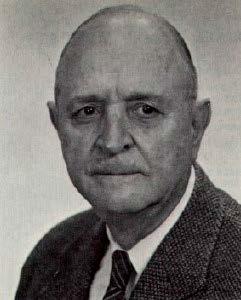
from 1925 to 1927 and was then an assistant state attorney general of Shelby County, Tennessee until 1935, when he was appointed Referee. He served as a Tennessee State Senator in 1935, Judge of the City of Memphis from 1937 until 1938, and Attorney General for Shelby County from 1938-1940. President Franklin D. Roosevelt nominated Boyd to a newly-created position on the United States District Court for the Western District of Tennessee, and he served from September 27, 1940, until his death on January 9, 1988.26
Carl R. Graves (right) was appointed Referee on February 24, 1937, in the position vacated by Judge Boyd who resigned to become city court judge.27 Graves served as Referee until 1971. He had previously served as assistant state public defender and assistant state attorney general.28

Carl R Grave s photo
Judge Boyd was born in Covington, Tennessee, on September 12, 1900. His parents were Alfred Boyd, Sr. and Mary Columbia Harris. He received the Bachelor of Laws degree from the University of Tennessee College of Law in 1921 and entered private practice in Memphis. He was a member of the Tennessee House of Representatives
21 Crockett County, Tennessee Genealogy and History, genealogytrails. com
22 E. Bunyan Carter was also offered a position as co-referee but refused to accept it reportedly because the reforms of Judge Martin made the position less lucrative than before. The Commercial Appeal, September 4, 1935, p. 13.
23 The Commercial Appeal, September 11, 1935, p. 13.
24 The Commercial Appeal, September 7, 1935, p. 11.
25 The Commercial Appeal, September 4, 1935, p. 13.

During Graves’ tenure, bankruptcy referees’ terms were extended from two to six years, and they began to receive fixed salaries of $10,000 per year for full-time work. In 1957, Graves reported that easy credit and a high standard of living resulted in most of the bankruptcy filings.29 In his annual report, he noted that filings had increased from 206 new cases in Memphis in 1948 to 1,565 in 1956. He attributed this increase to the growing popularity of the wage earner plan. He noted that he disbursed $500,000 the previous year, representing an average of 6,000 checks per month that he hand-signed at home at night before the recent acquisition of a check-signing machine.30 Referee Graves was active on a national level in the development of American bankruptcy law.
26 Federal Judicial Center, Biographical Directory of Article III Federal Judges, 1789-present, https://www.fjc.gov/history/judges/boyd-marionspeed
27 The Commercial Appeal, February 25, 1937, p. 12.
28 The Commercial Appeal, June 23, 1953, p. 8.
29 The Commercial Appeal, January 10, 1957, p. 14.
30 Id.
Jennie D. Latta is the Chief Bankruptcy Judge for the Western District of Tennessee. On March 6, 1997, she was appointed by the United States Court of Appeals for the Sixth Circuit to succeed Judge Bernice B. Donald. Judge Latta was reappointed to a second fourteen-year term on February 14, 2011, and also served a four-year term on the Bankruptcy Appellate Panel for the Sixth Circuit from 2003 to 2007. The author wishes to thank Rhoda H. Smith and Jennifer McGaugh for their invaluable assistance in the preparation of this history.



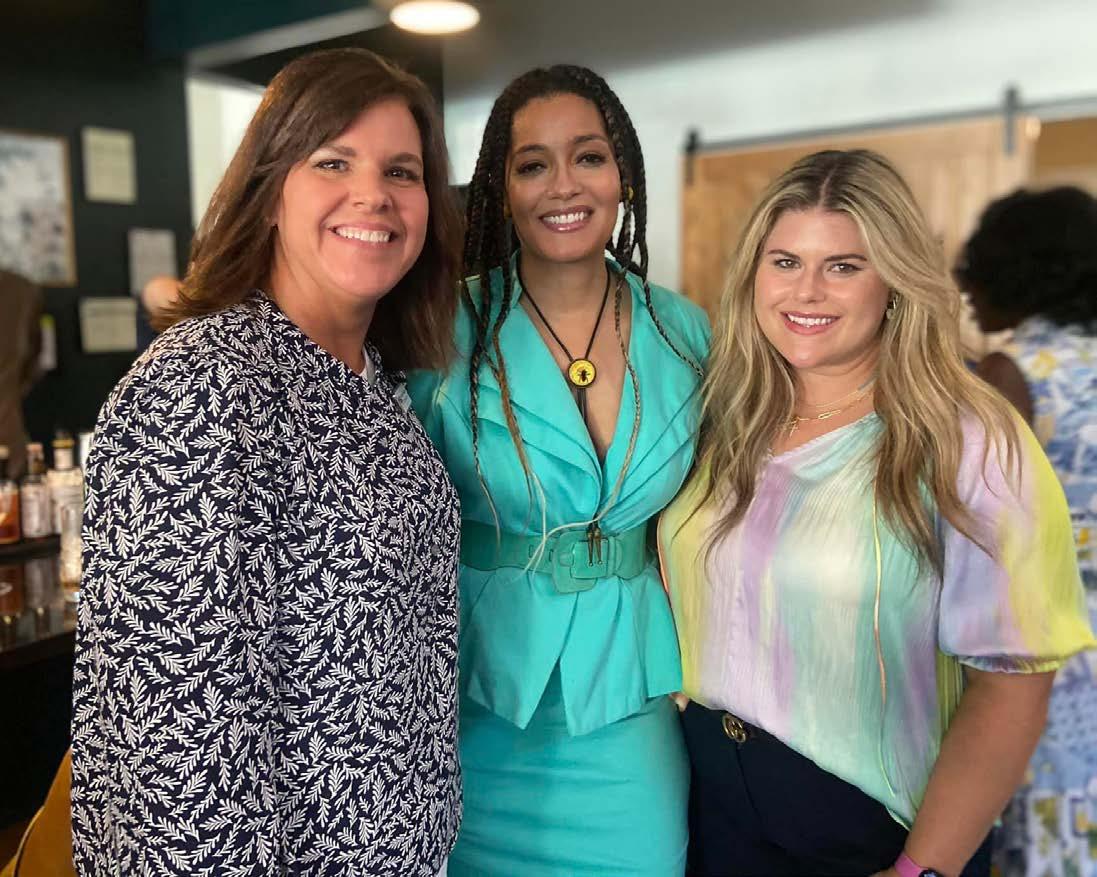
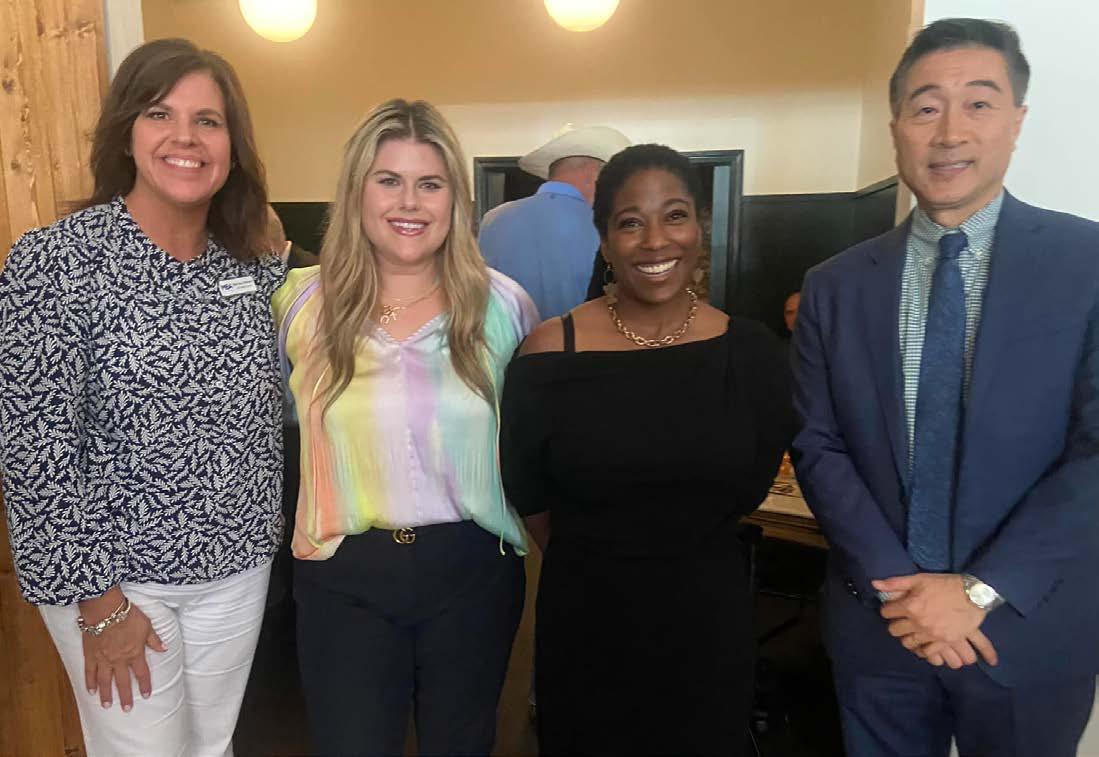

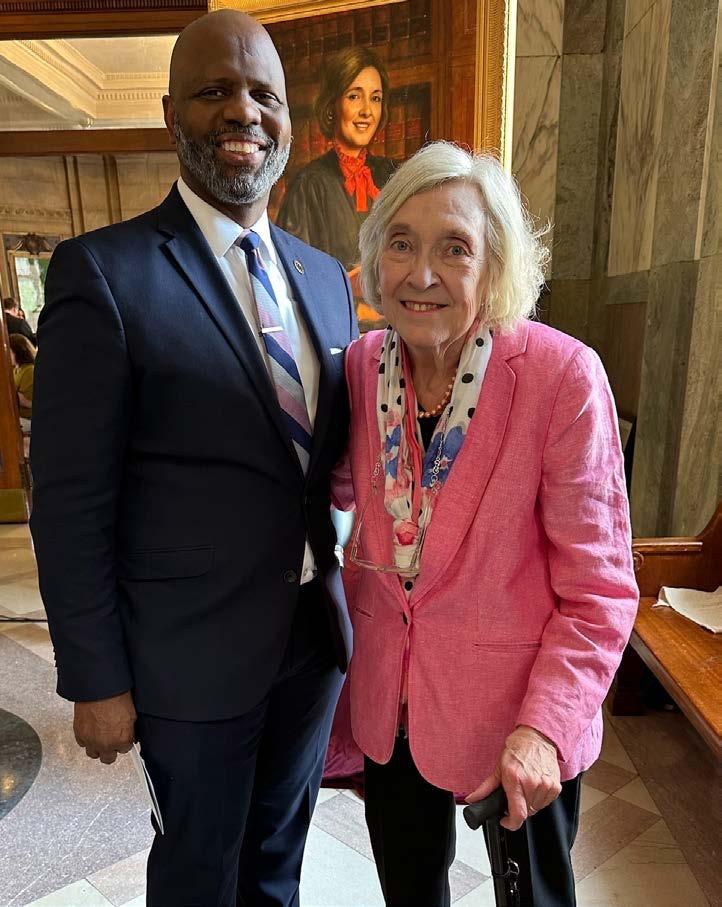







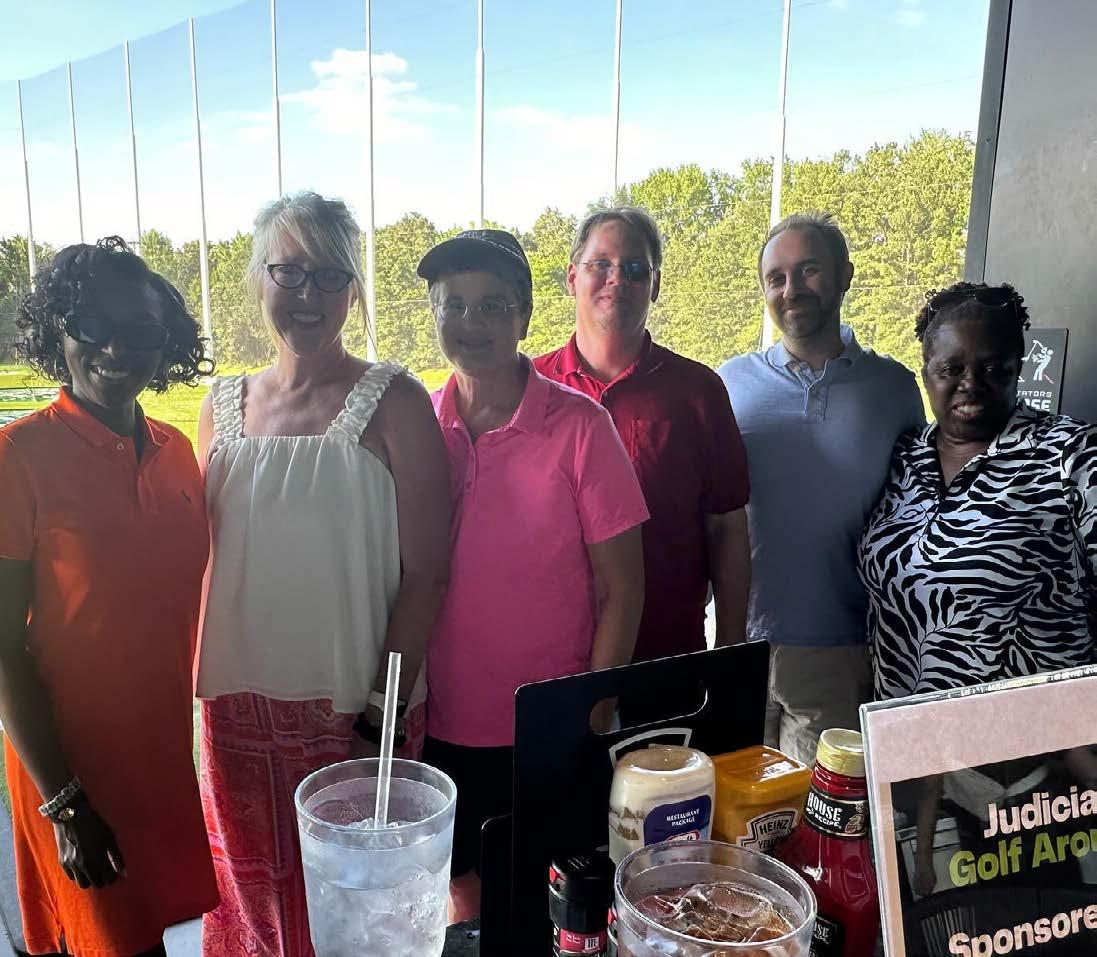



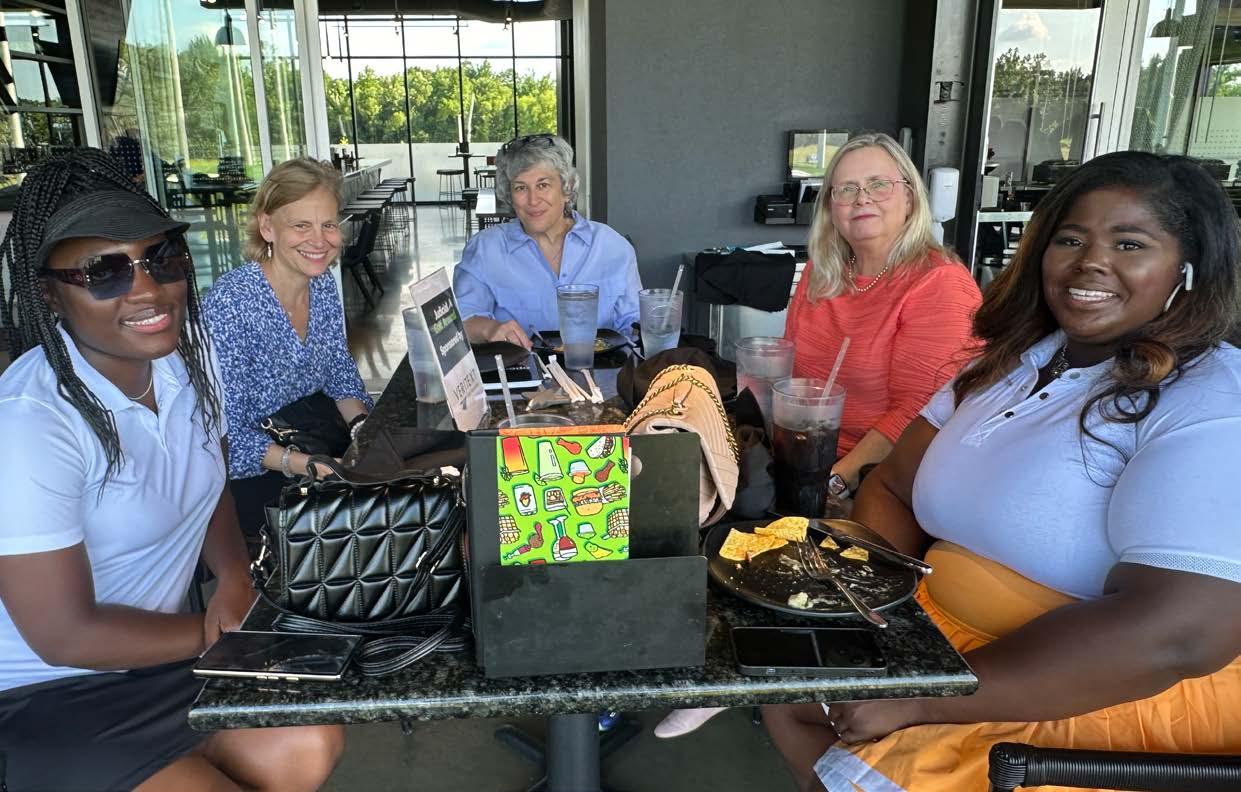






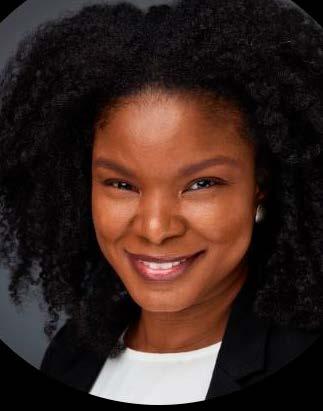






In May 2024, Memphis Area Legal Services (MALS) appointed Nicole M. Grida (above) as its new CEO and Amber Floyd (below) as chair of the Board of Directors. Ms. Grida is a longtime supporter of access to justice programs, and will bring her leadership, collaboration and legal skills to the organization to ensure it continues to provide excellence in legal advocacy to those in need, while finding innovative ways to protect the legal rights of low-income citizens in Shelby, Fayette, Tipton and Lauderdale counties. Ms. Floyd is general counsel to the Memphis International Airport and a YLD Fellow.

On July 9, 2024, the Memphis City Council approved the renaming of a portion of Front Street between Poplar Avene and Beale Street in honor of retired Judge Bernice Bouie Donald, who retired from the U.S. Sixth Circuit Court of Appeals last year as the first Black woman to serve on the court. Judge Donald became the first Black woman judge in Tennessee when she was elected to the Shelby County General Sessions Criminal Court in 1982, and the first Black female bankruptcy judge in the nation when she was named to the U.S. Bankruptcy Court for the Western District of Tennessee in 1988. She also was the first Black woman to serve as a federal judge in the state after she was nominated to the U.S. District Court for the Western District of Tennessee by former President Bill Clinton in 1995.

In June 2024, at the TBA’s annual convention, Jennifer Sneed was elected as Vice President of the TBA Young Lawyers Division. She will become president-elect in 20252026, and she will take over the TBA YLD’s leadership in June 2026.
Ms. Sneed is the Director – Legal/Estates for St. Jude Children’s Research Hospital – ALSAC.

In July 2024, Chicago-based law firm Segal McCambridge opened an office in Memphis. Shareholder Nelson T. Rainey, a University of Memphis School of Law graduate, will oversee the office and will be joined by shareholder Michael S. Litrenta and associates Angel T. Davis and Jaime K. Quezon. Rainey focuses on construction, health care liability, commercial litigation, real estate, family law and civil rights matters. Litrenta focuses on commercial litigation; Davis focuses on product liability, trucking, and medical malpractice litigation; and Quezon focuses on residential and commercial litigation insurance practice.
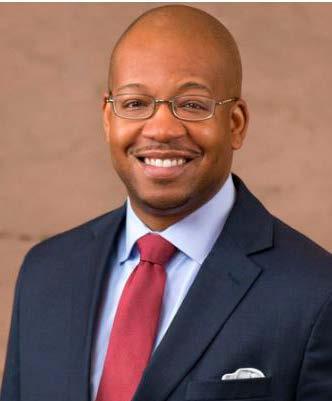
On August 16, 2024, Governor Lee announced the appointment of Gadson William Perry, a partner at Butler Snow LLP, to the Tennessee Higher Education Commission (THEC). (link to press release to include in article: https://www.tn.gov/ thec/news/2024/8/16/tennessee-higher-educationcommission-announces-new-commission-members. html). The General Assembly created THEC in 1967 to achieve coordination and foster unity concerning higher education in Tennessee. The Commission develops, implements, and evaluates post-secondary education policies and programs in Tennessee while coordinating the state’s systems of higher education.
If you are an MBA member in good standing and you’ve moved, been promoted, hired an associate, taken on a partner, or received an award, we’d like to hear from you. We will not print notices of honors determined by other publications (e.g., Super Lawyers, Best Lawyers). Notices are limited to 100 words; they are printed at no cost to members and are subject to editing. E-mail your notice and hi-resolution photo (300 dpi) to kswan@memphisbar.org.
